HaeAhn Woo Kwon
Bathroom Classroom
in collaboration with Isabelle Pauwels, Amy Lam, Kirby Chen Mages, and IBanJiHa (SoYoon Kim)
October 15 - November 13, 2021
week 1
week 3
week 4
week 5
Exhibition Text
Bathroom Classroom
in collaboration with Isabelle Pauwels, Amy Lam, Kirby Chen Mages, and IBanJiHa (SoYoon Kim)
October 15 - November 13, 2021
week 1
week 3
week 4
week 5
Exhibition Text
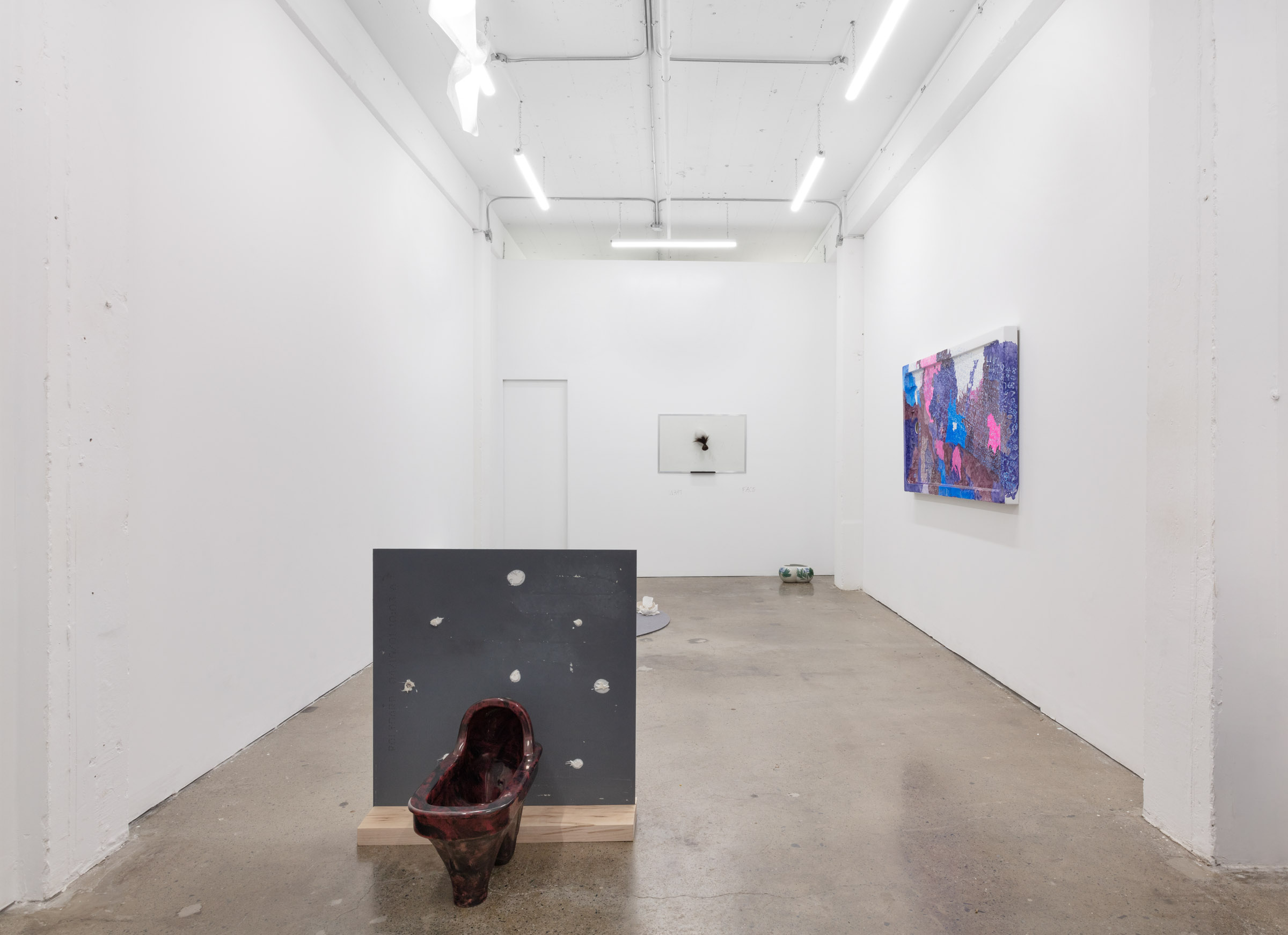
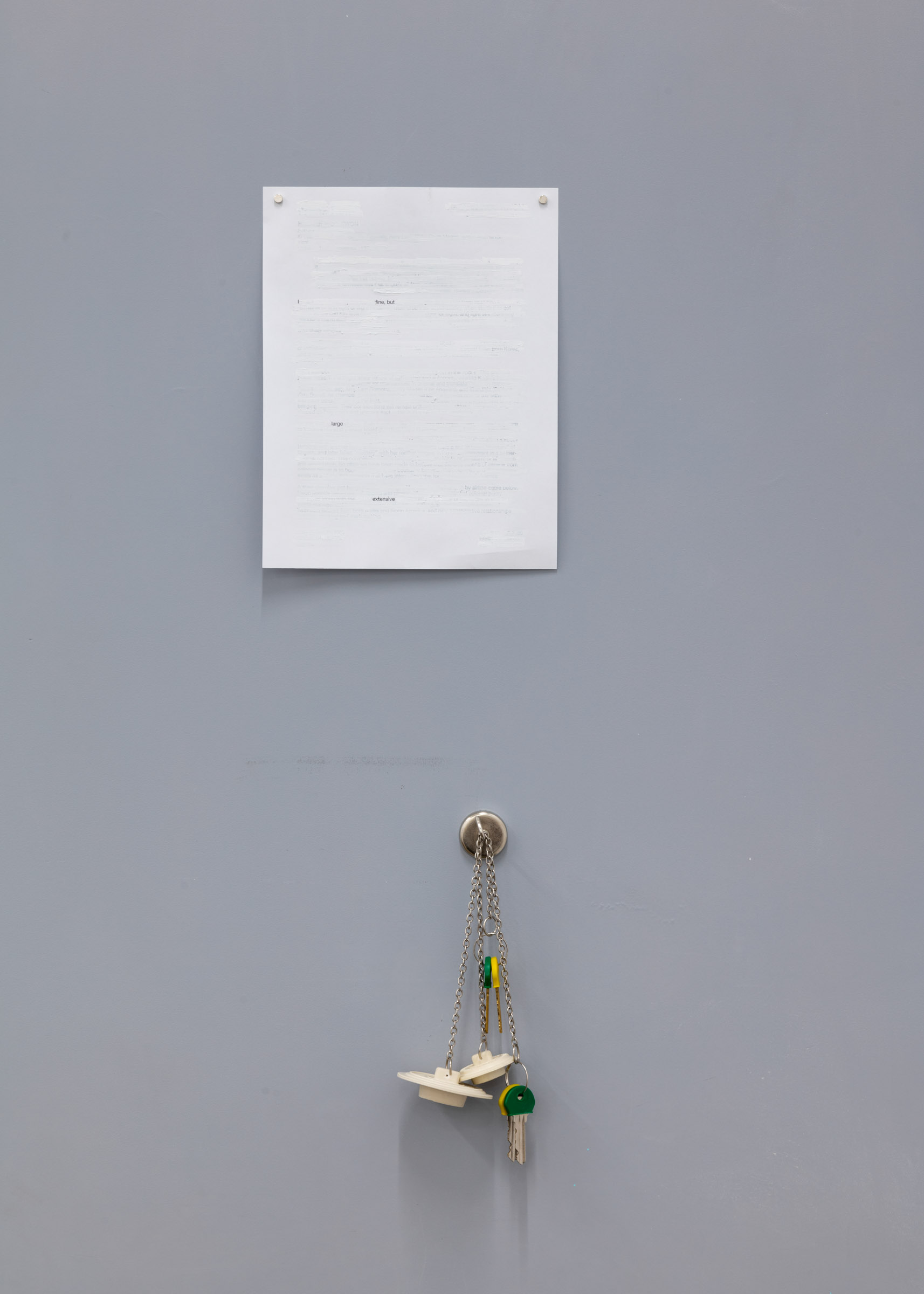
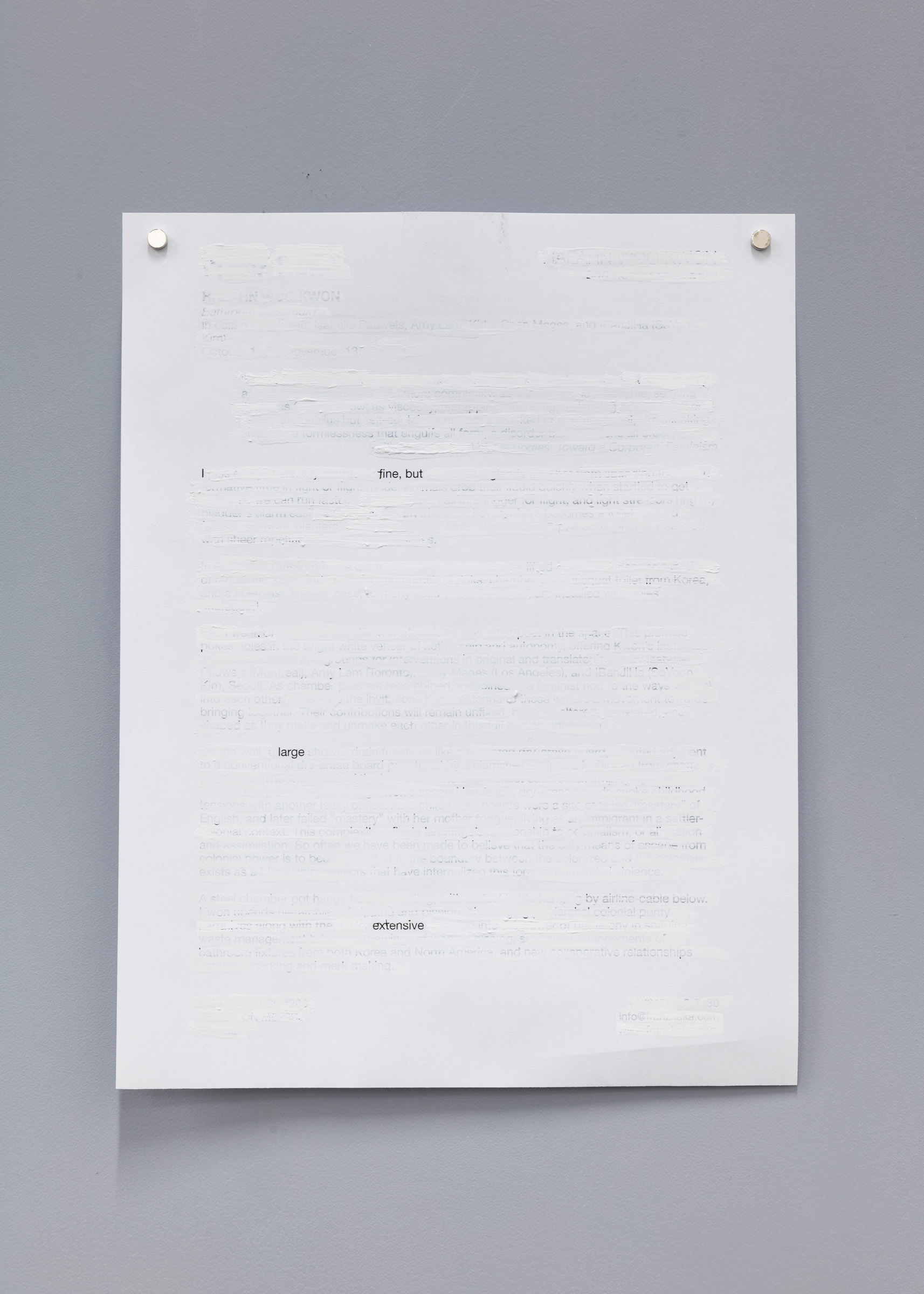


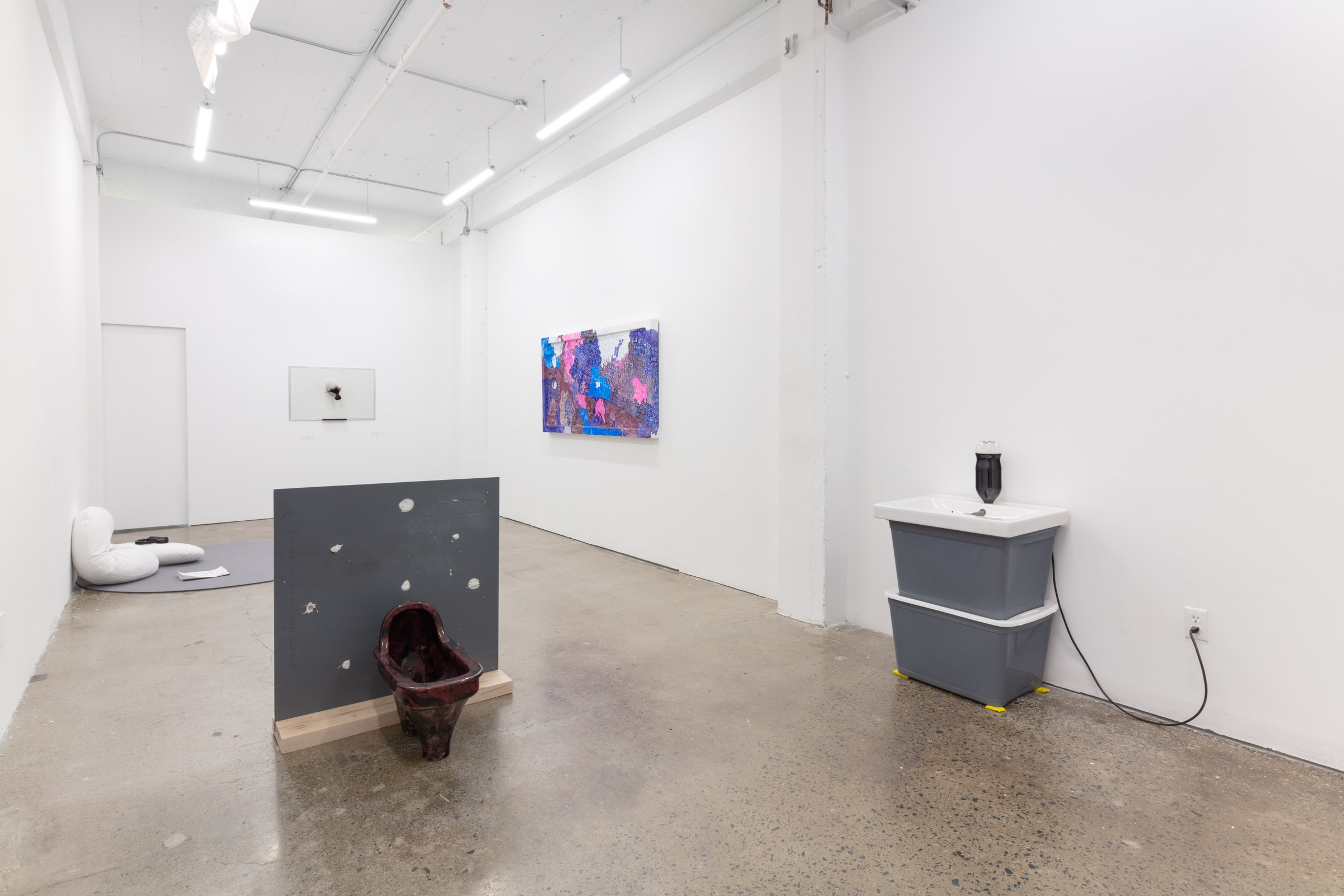
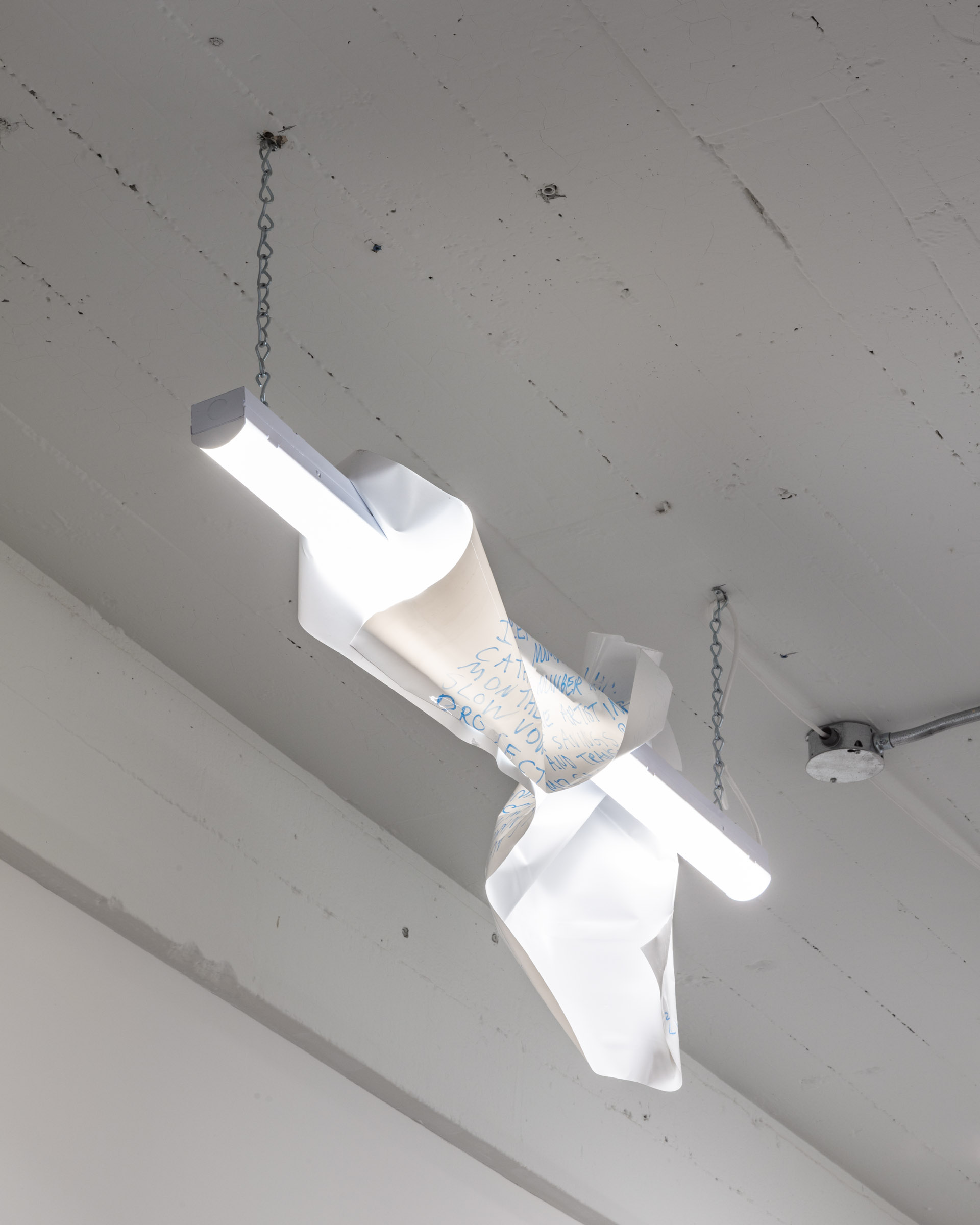
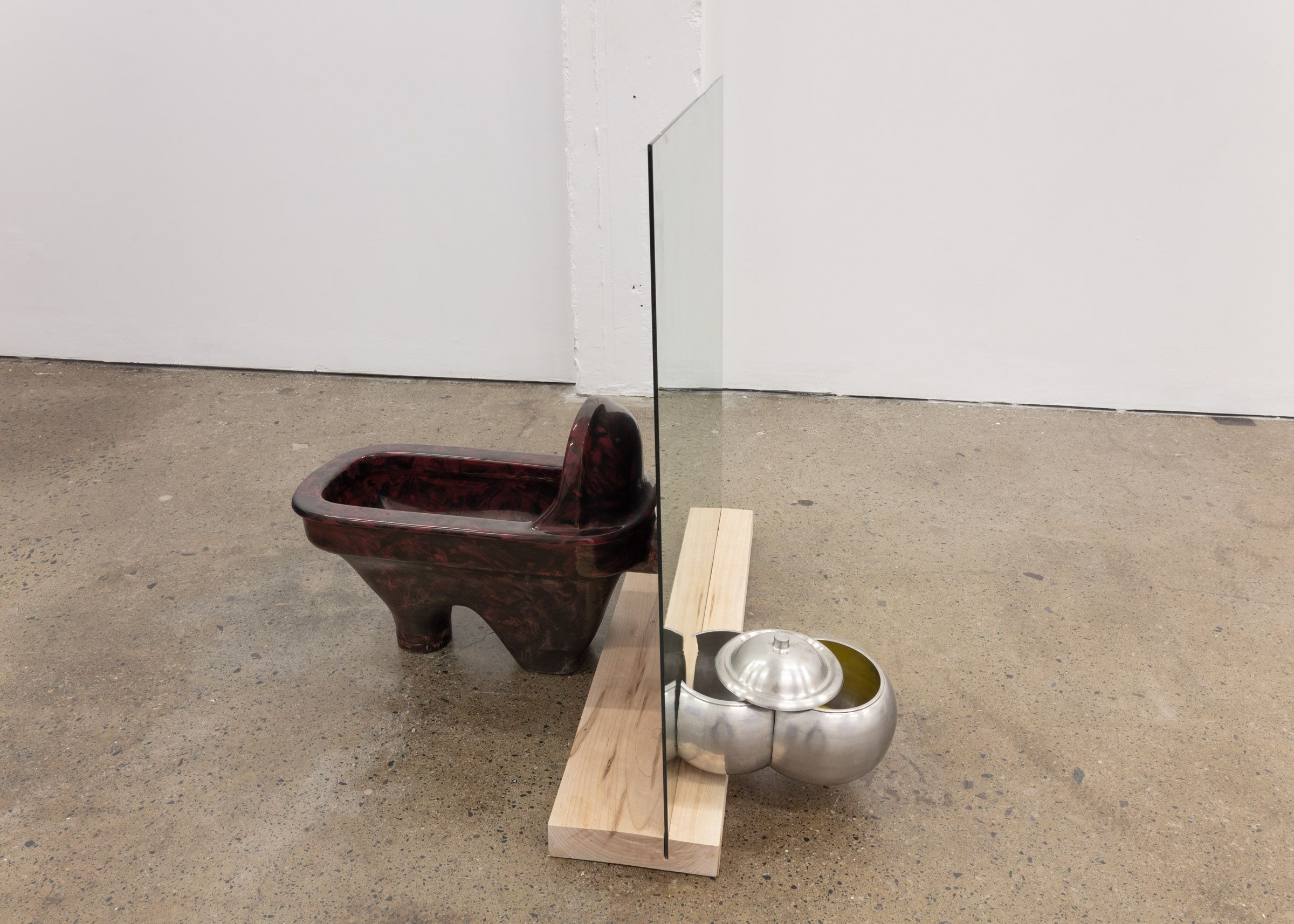
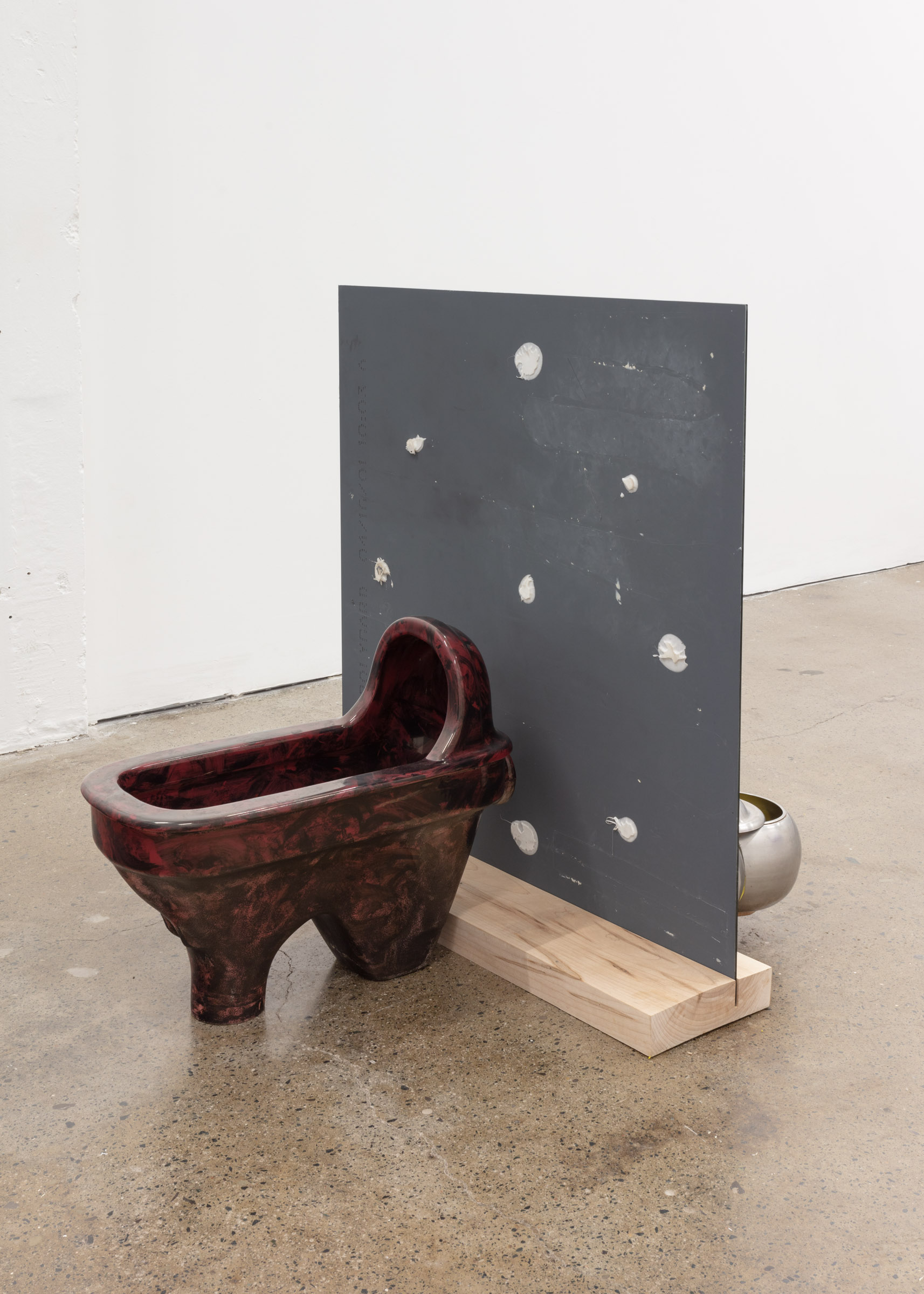
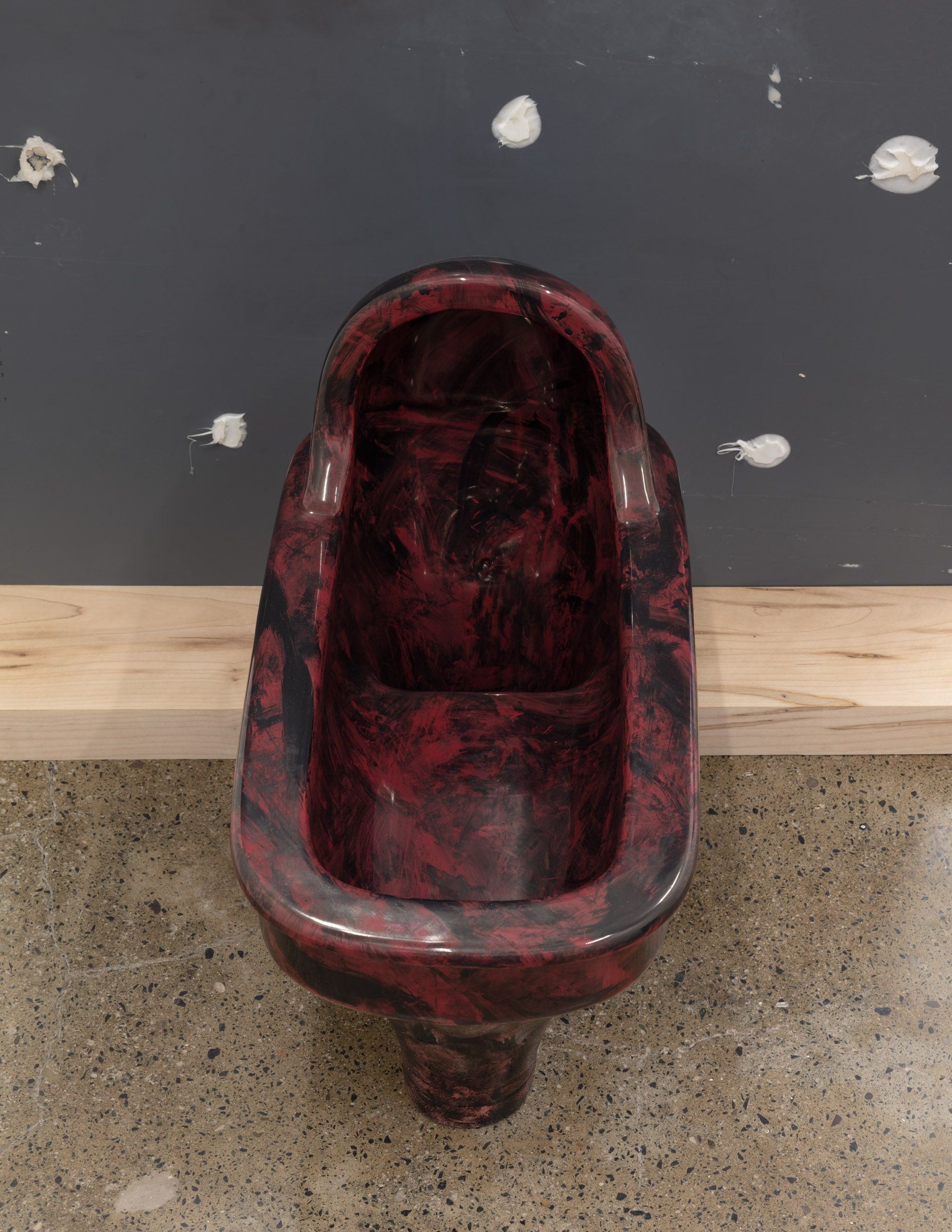
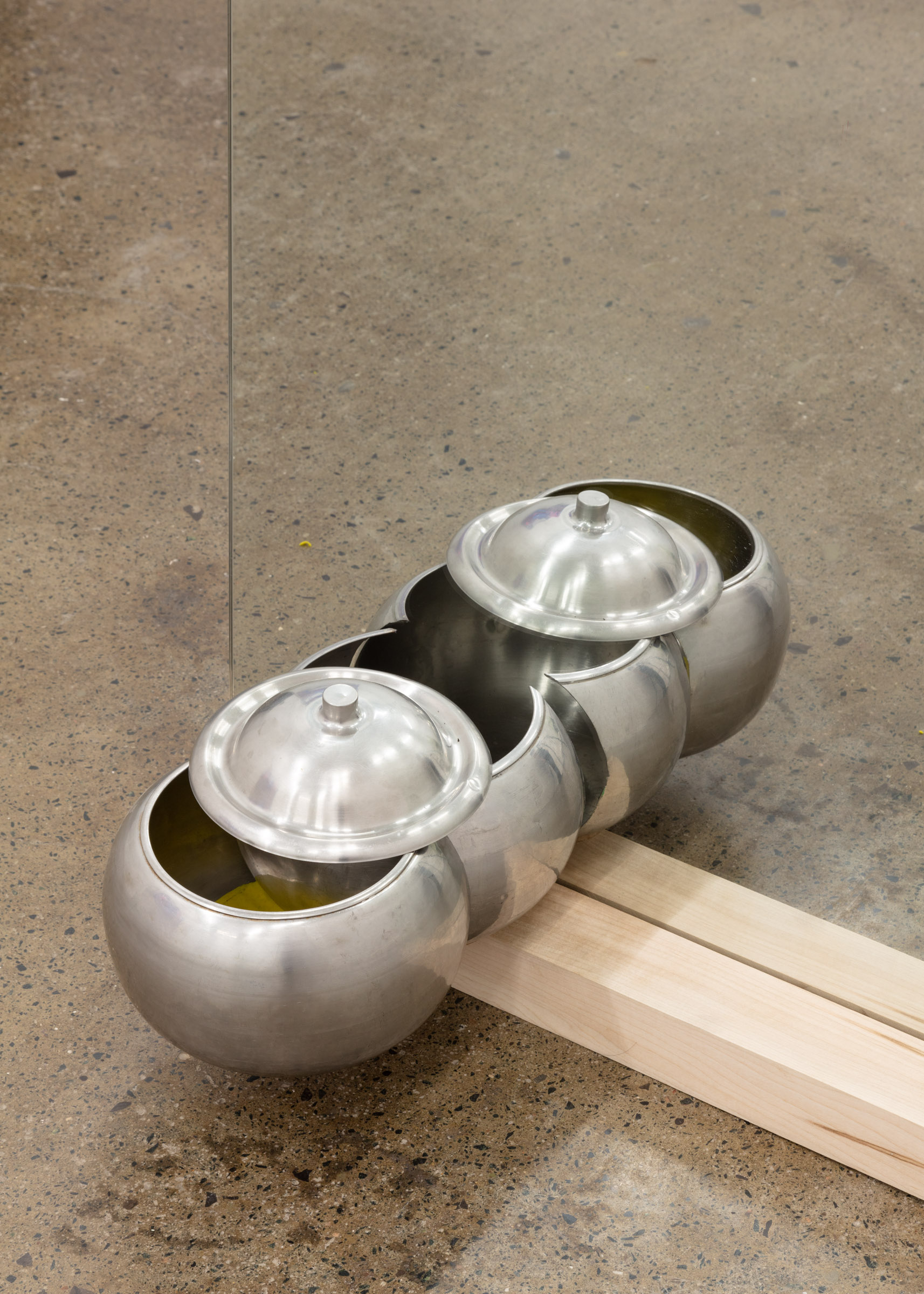
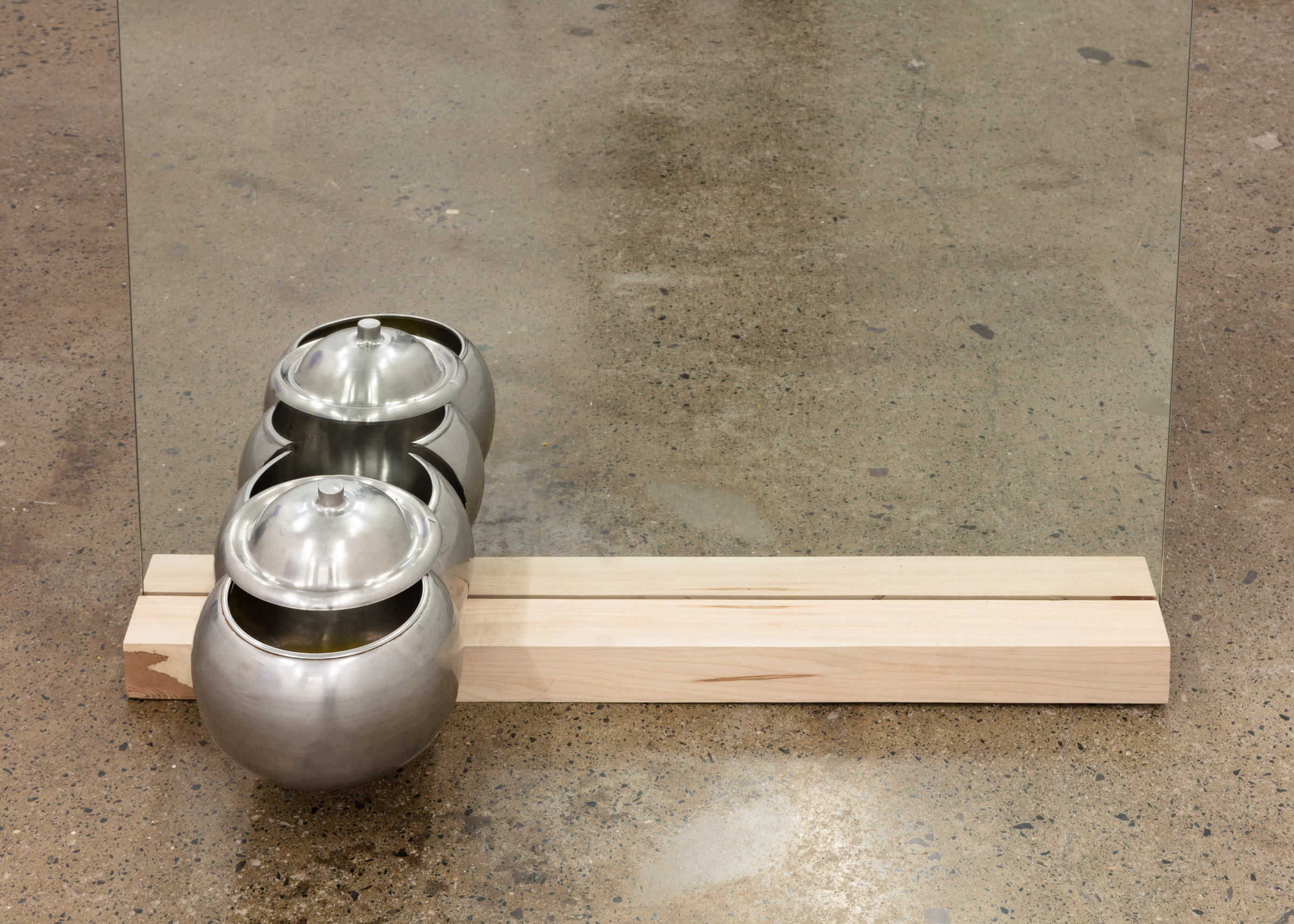


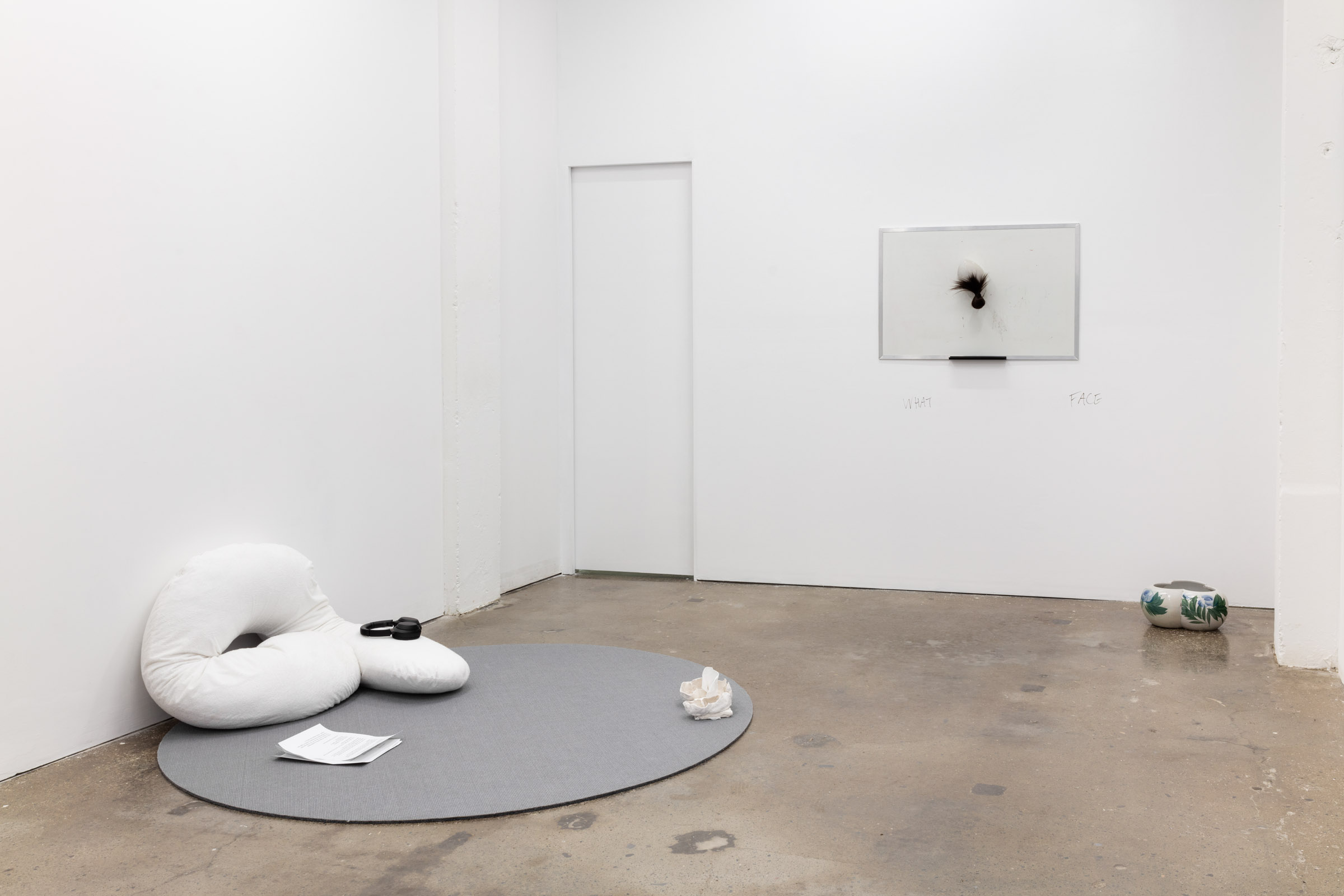
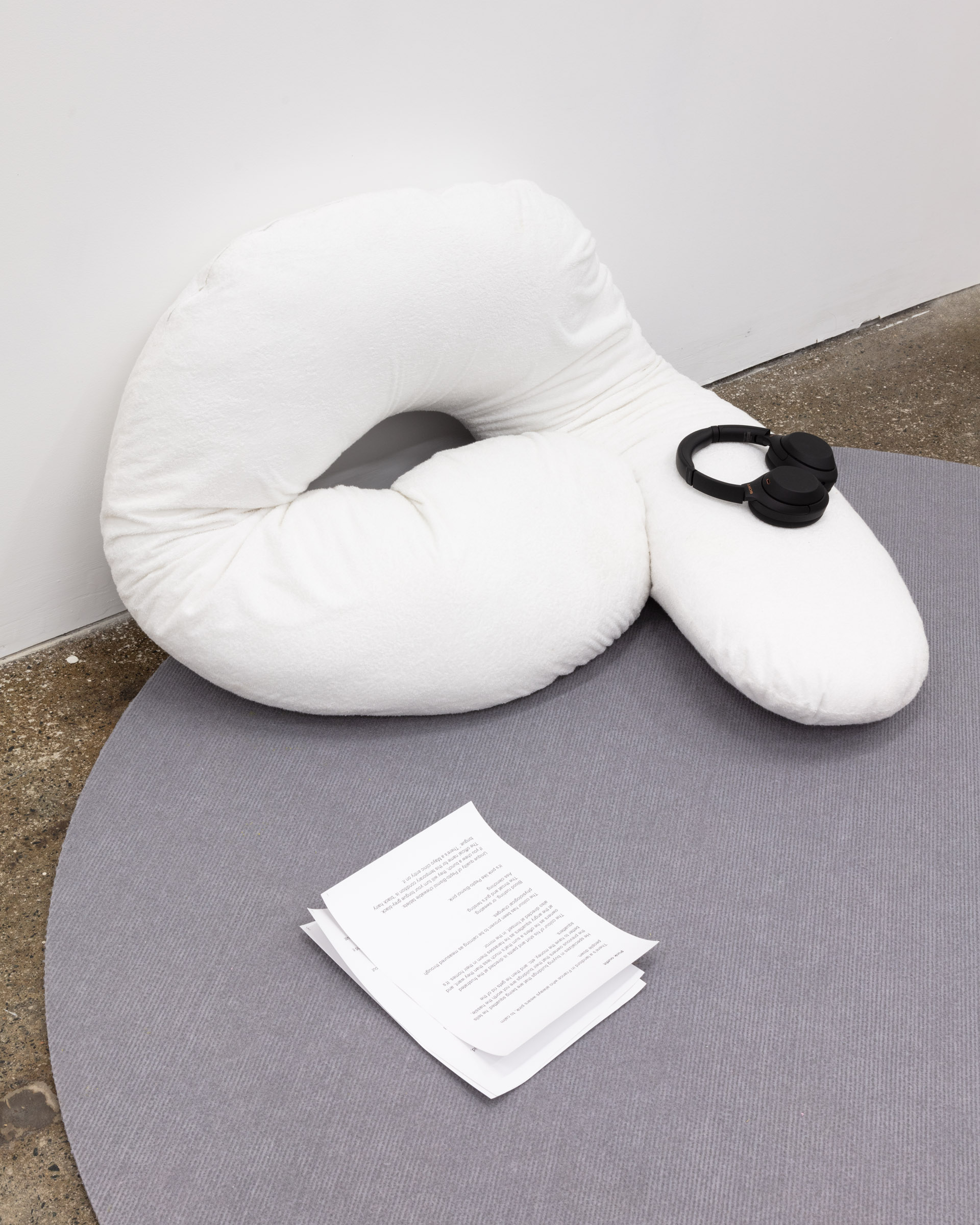
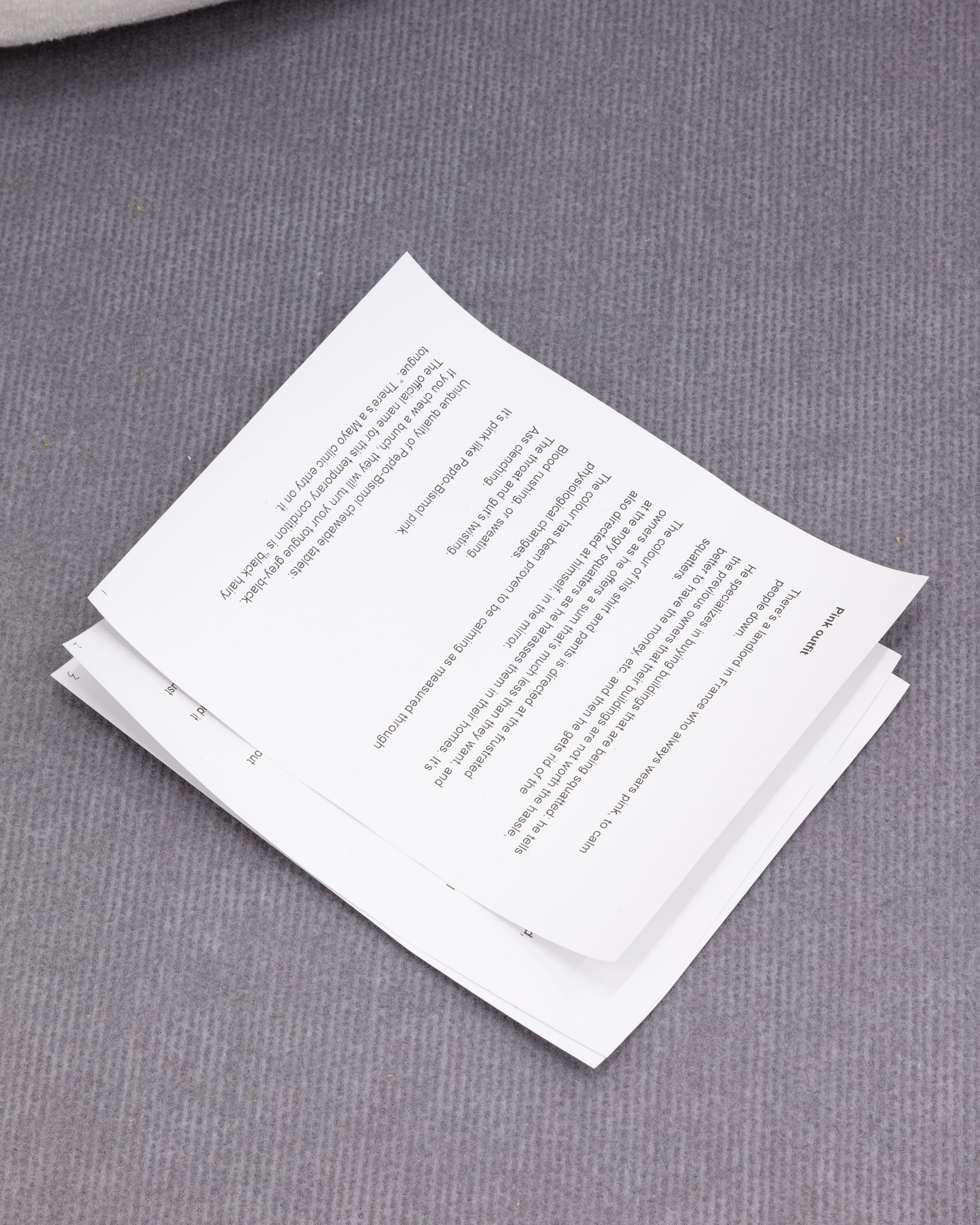
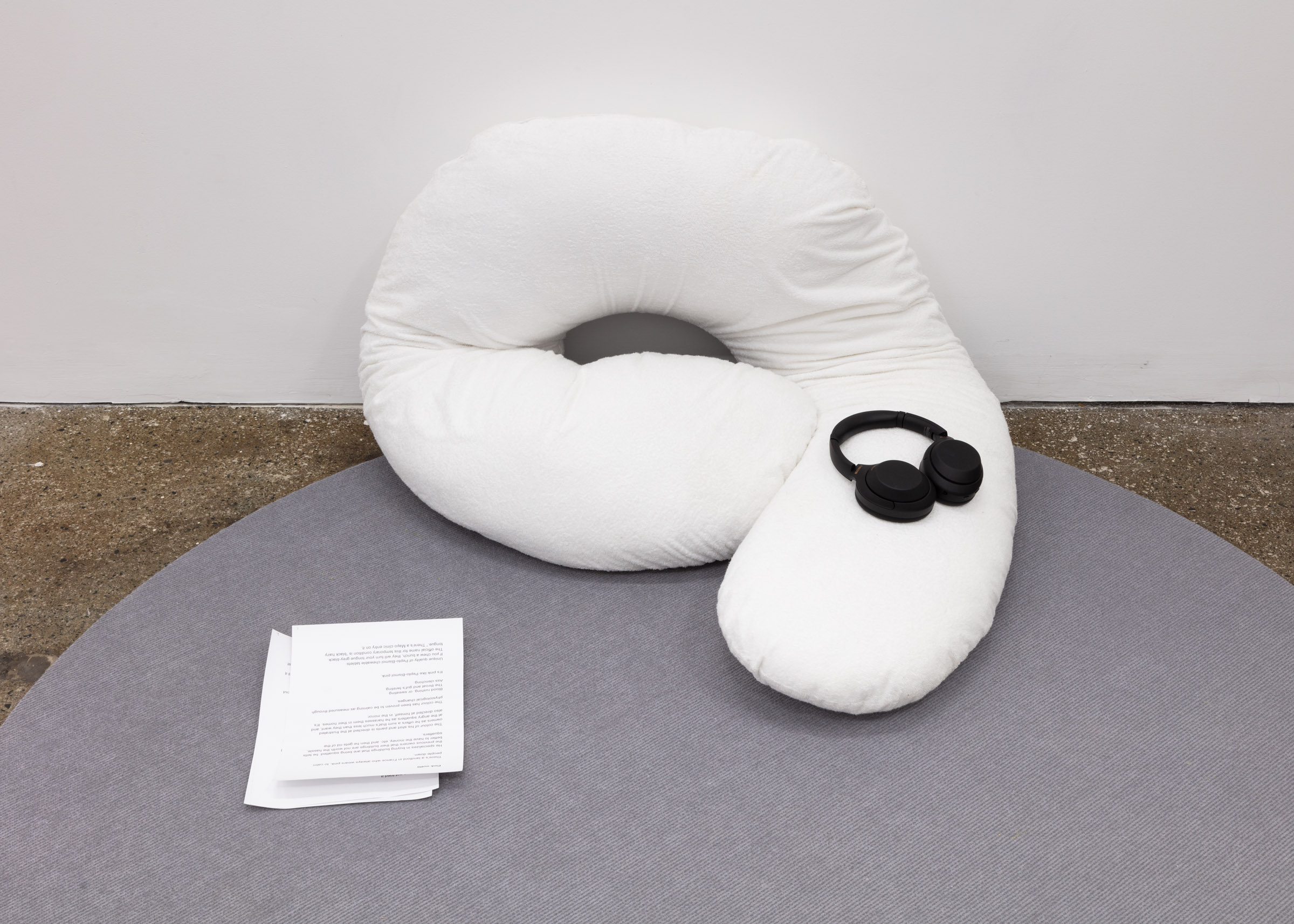

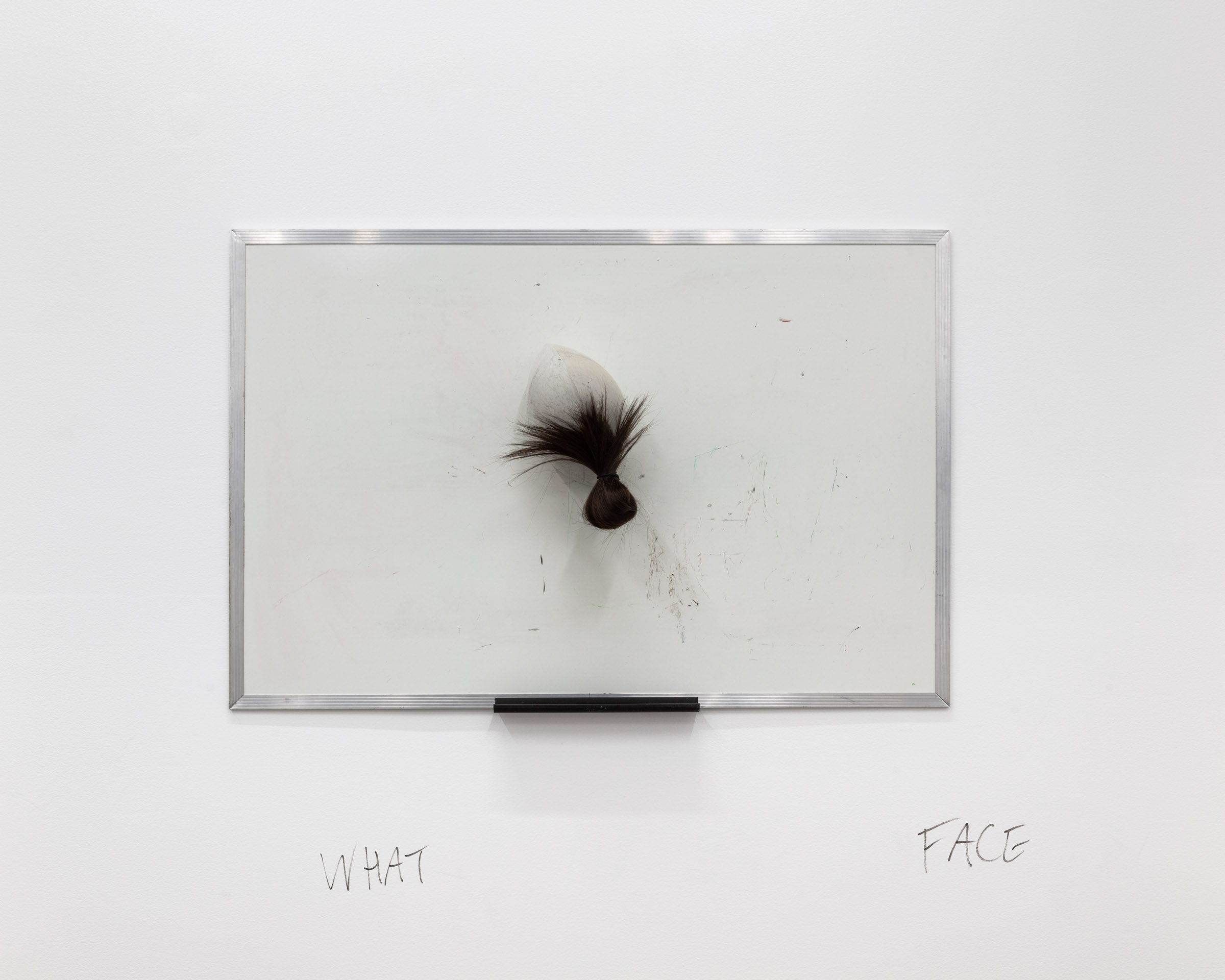

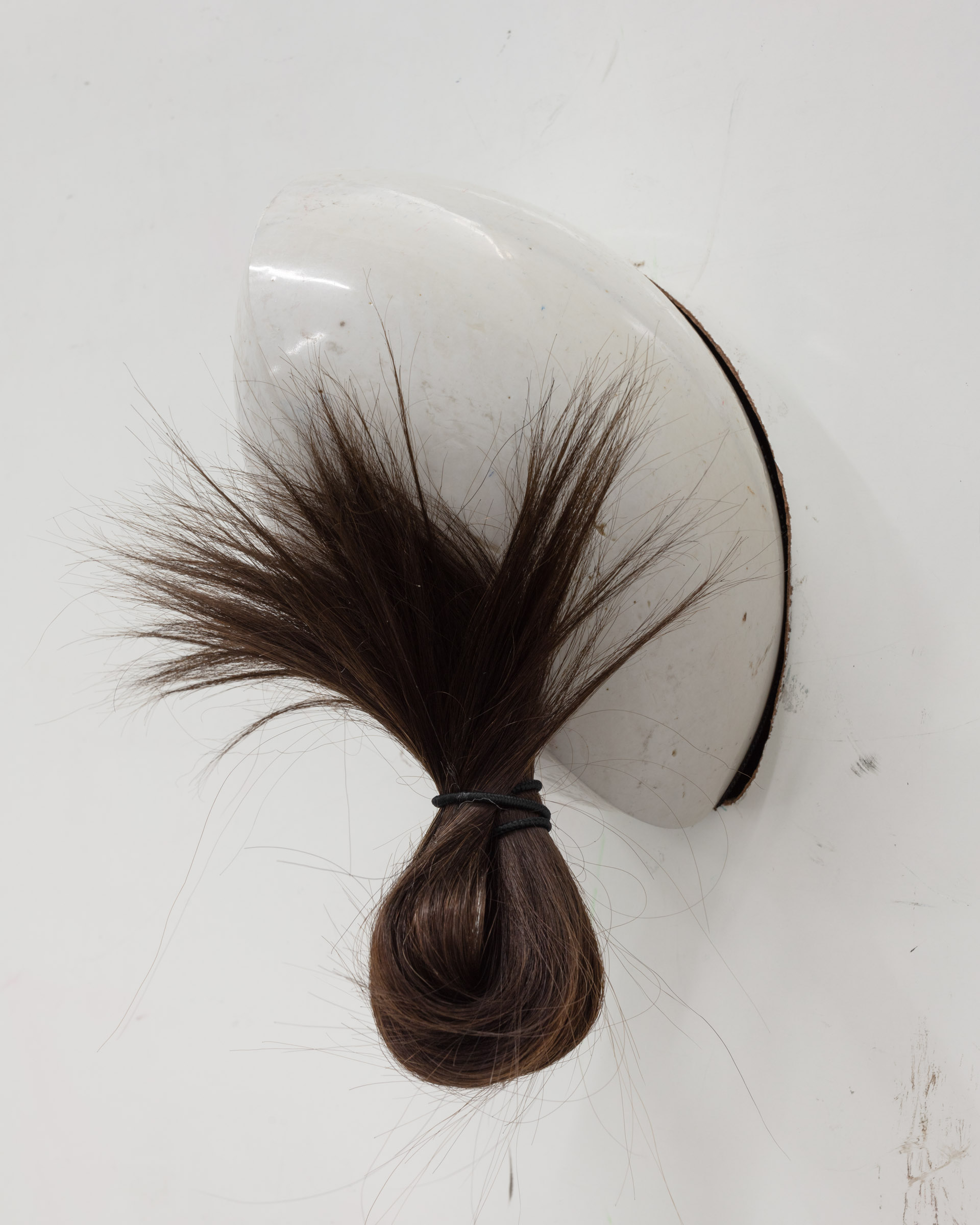
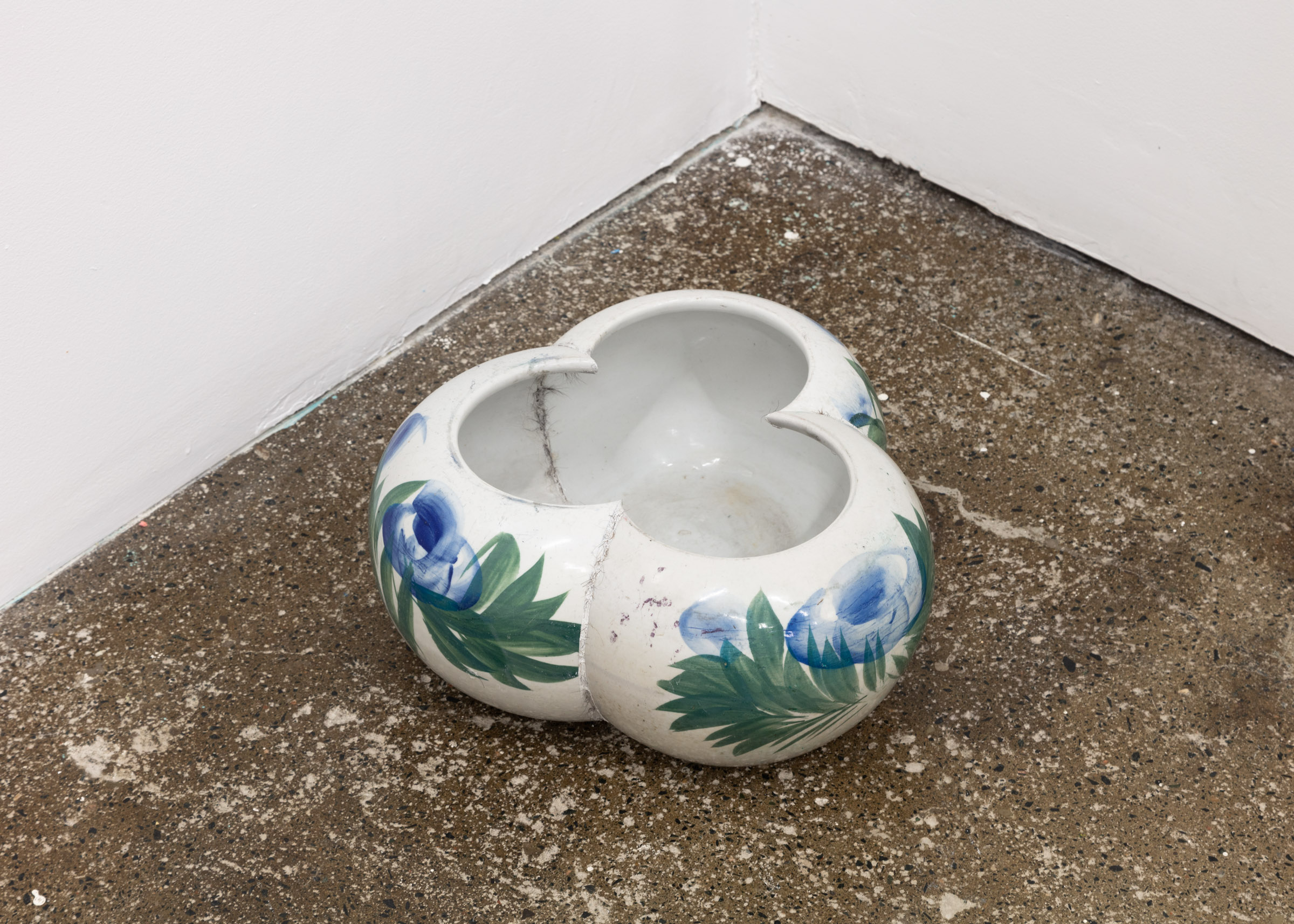
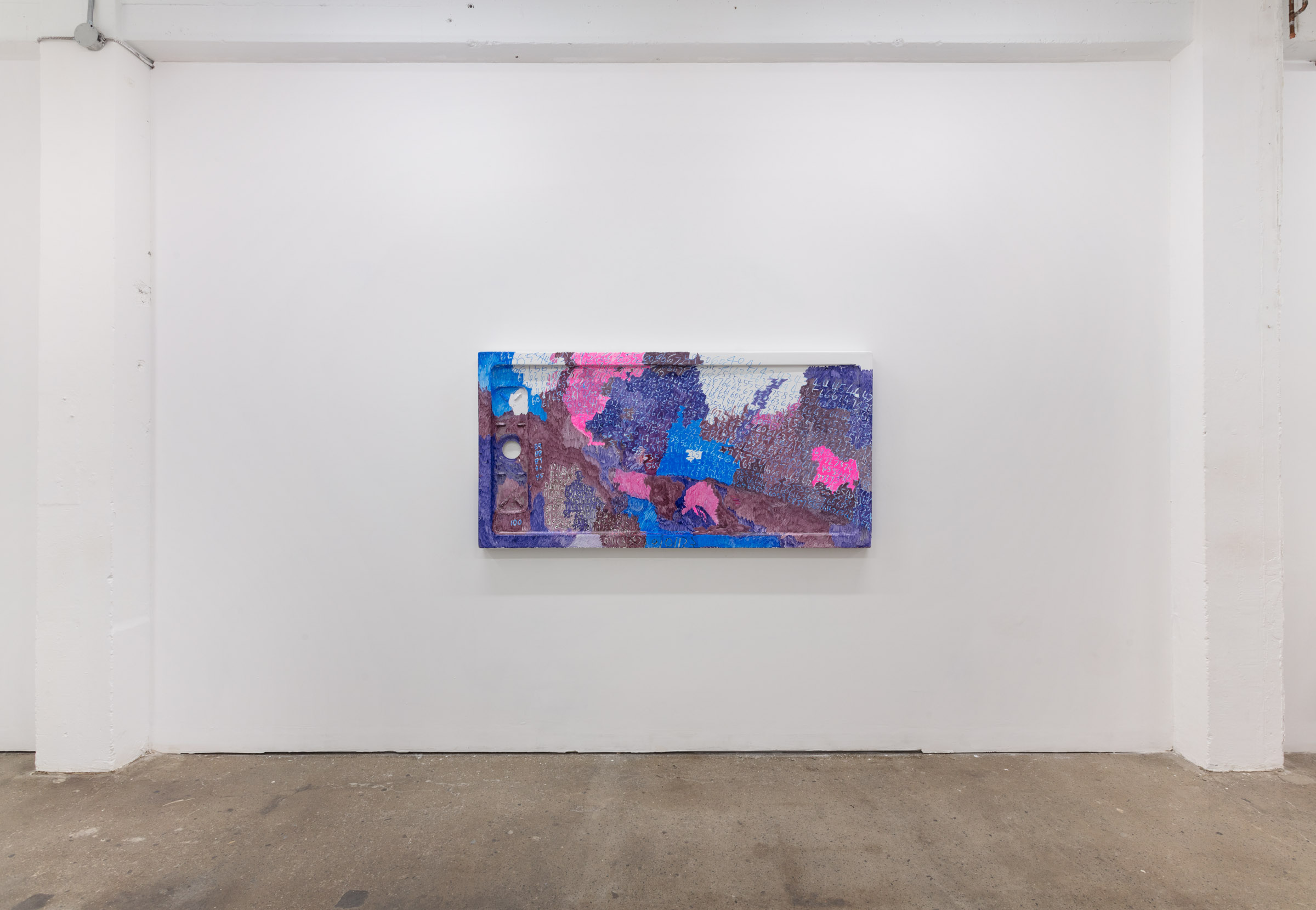
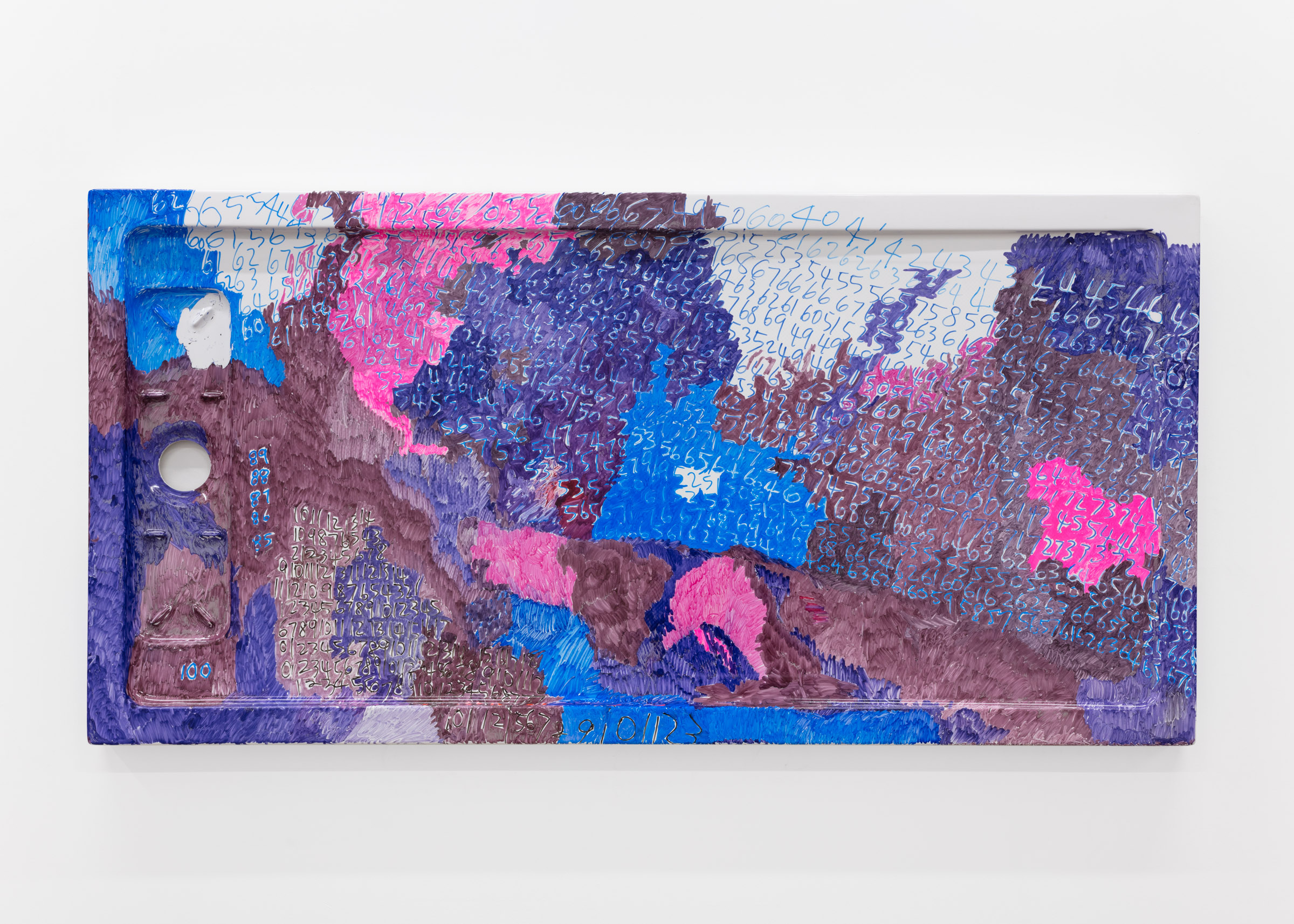
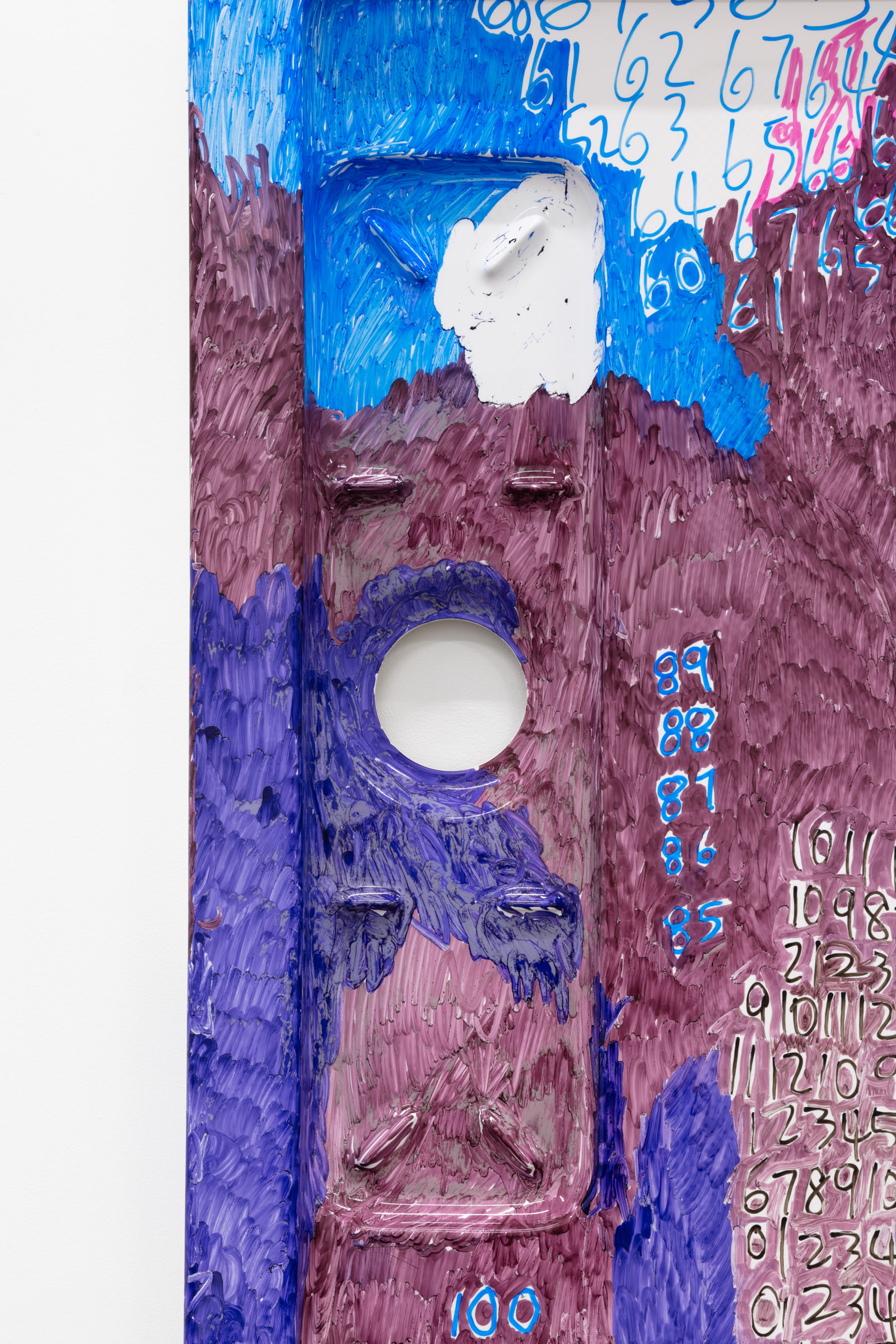
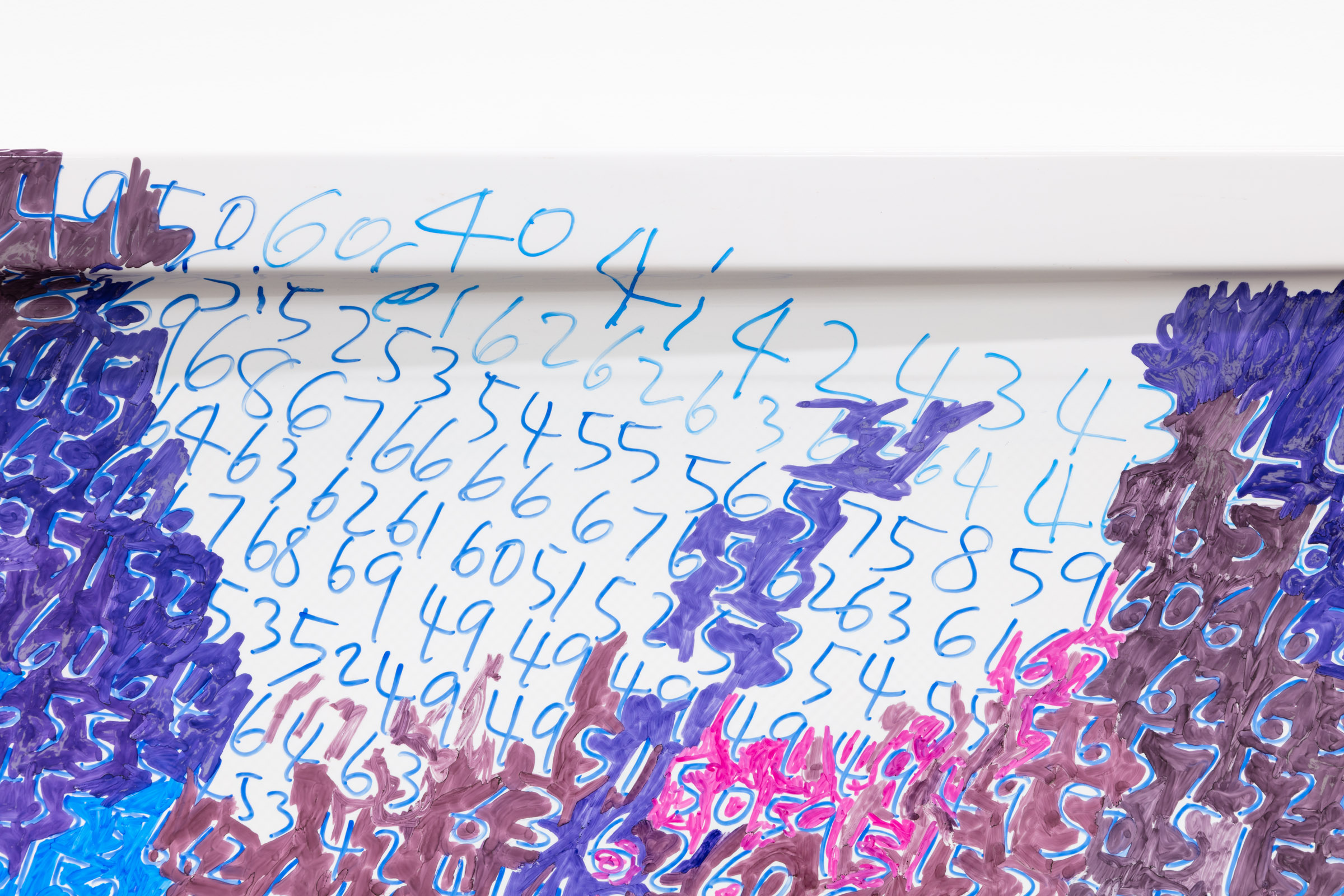
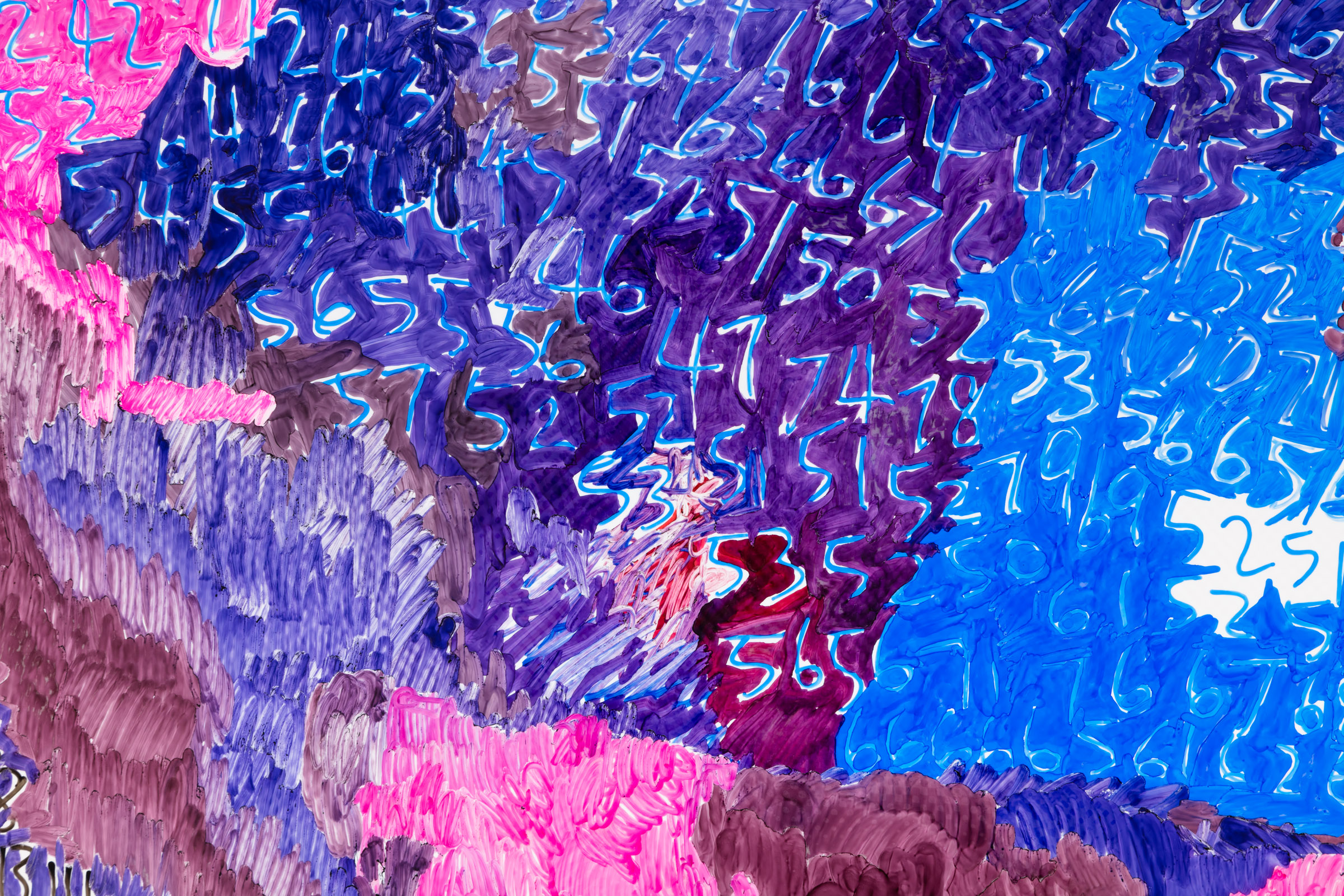
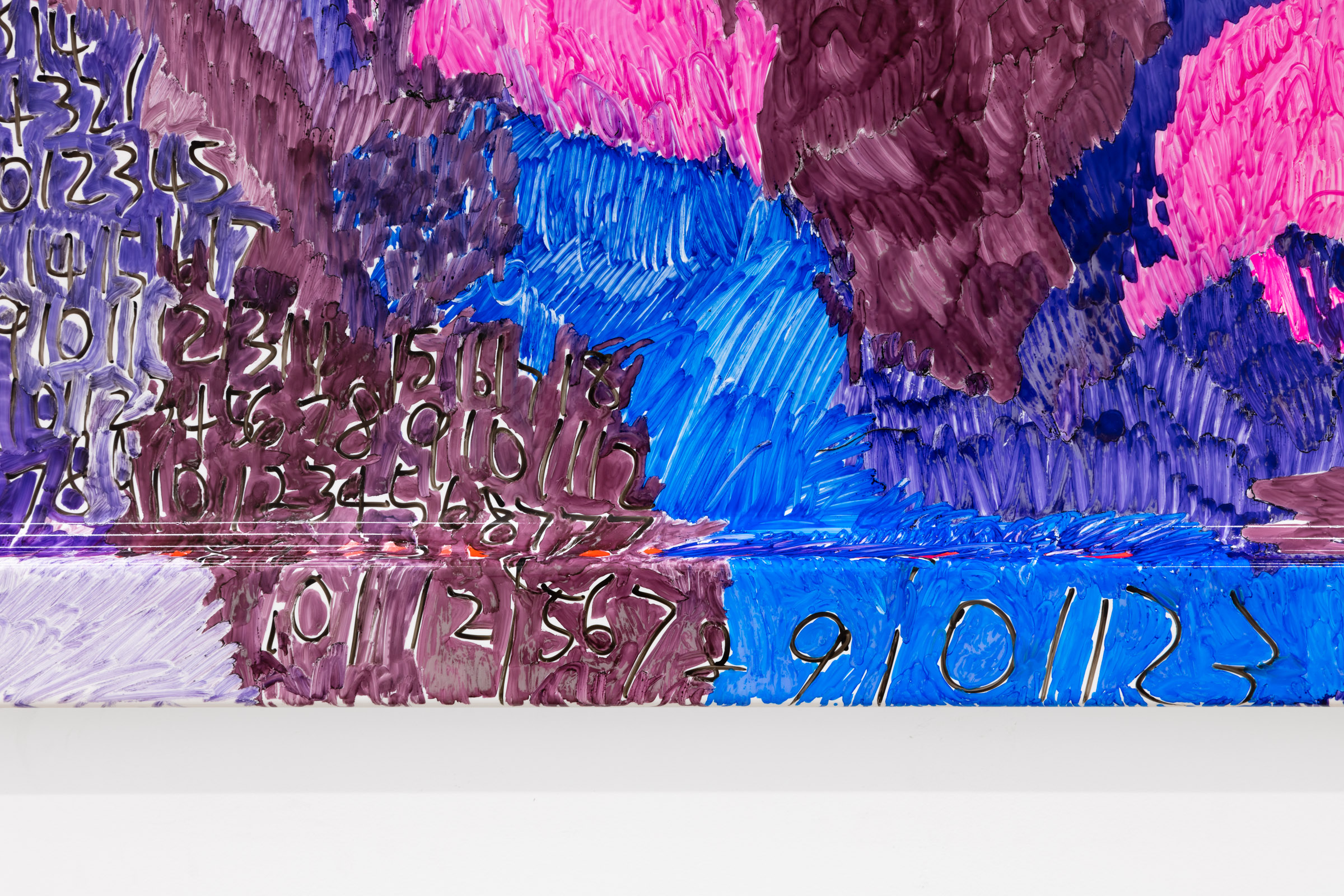
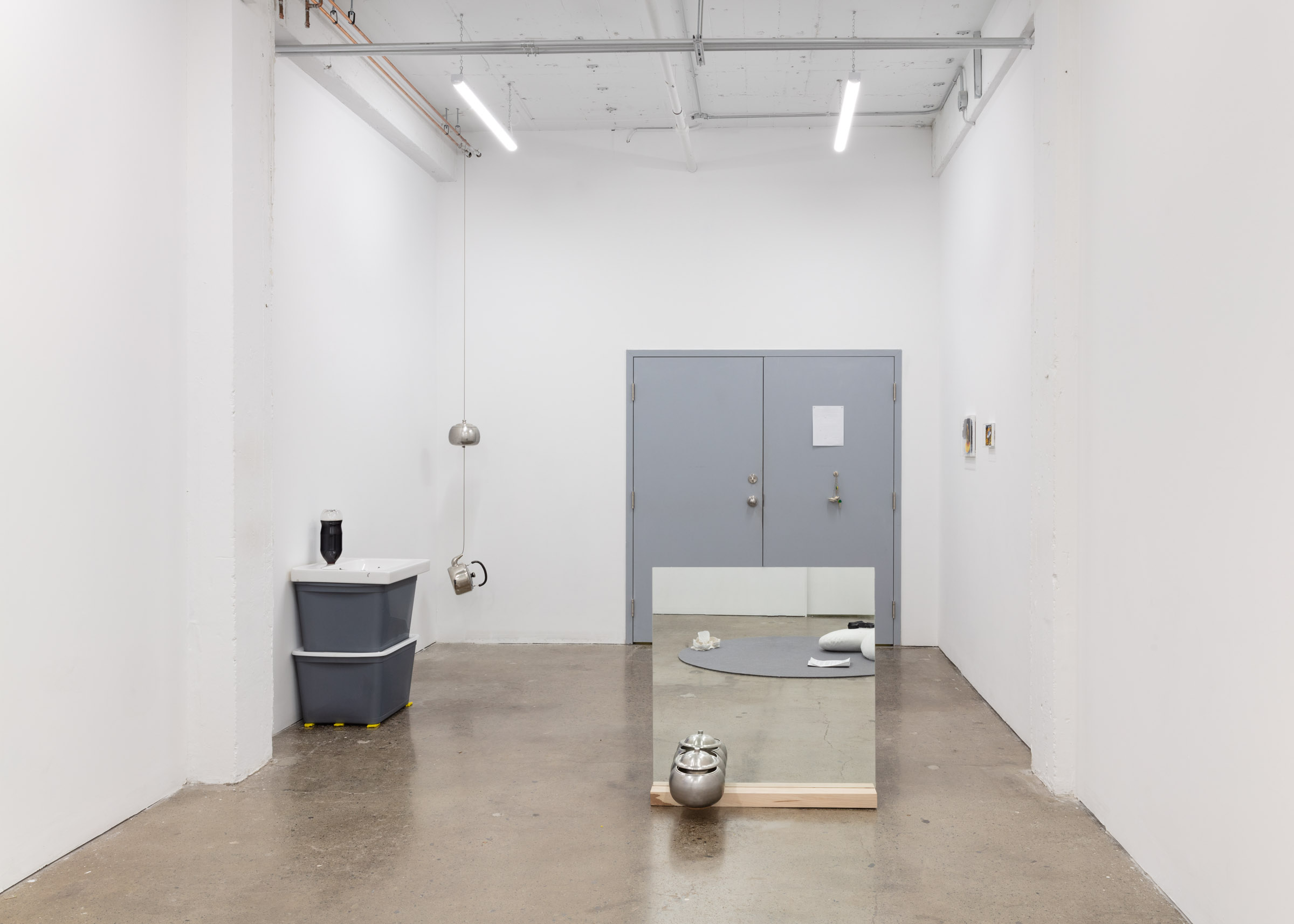
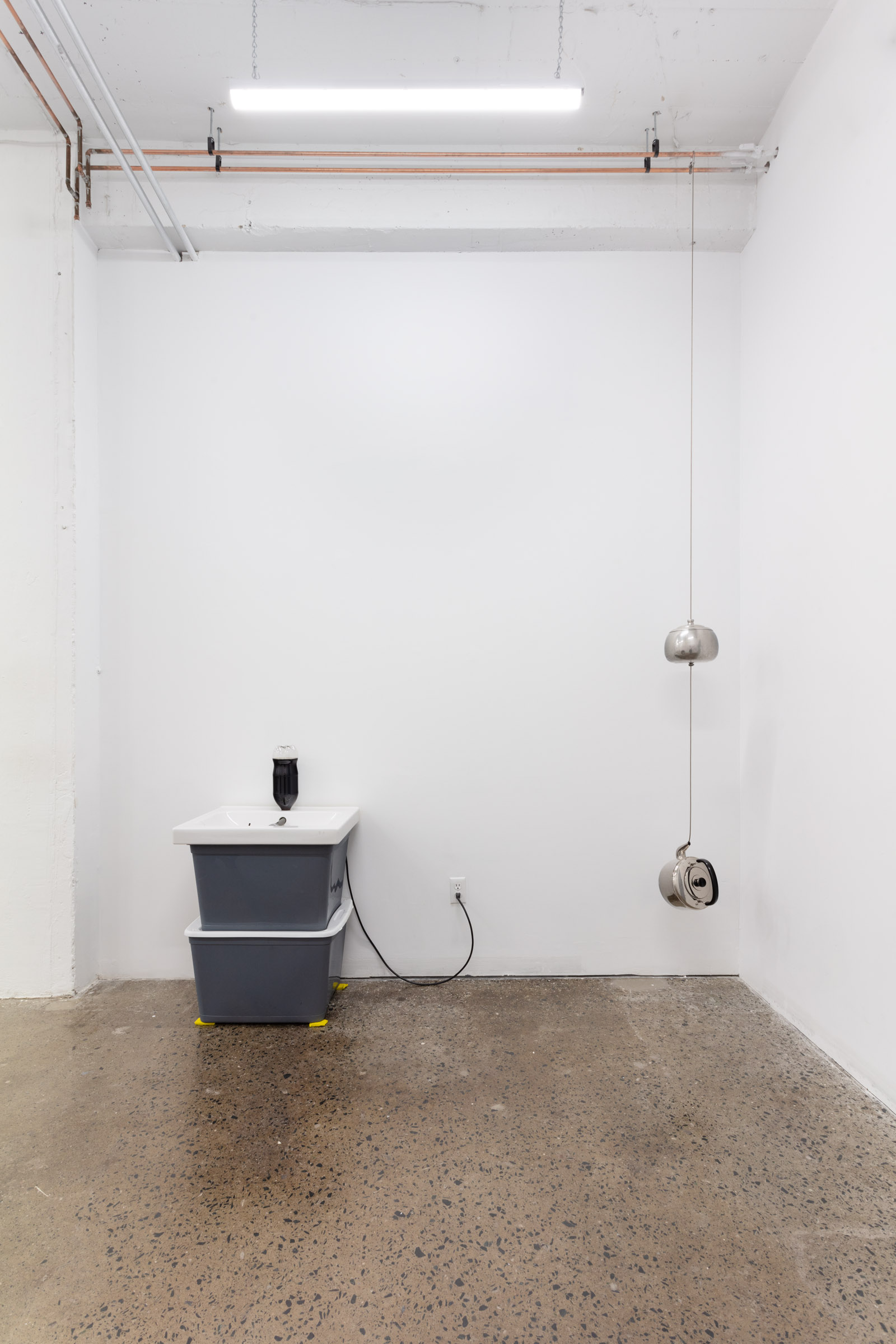
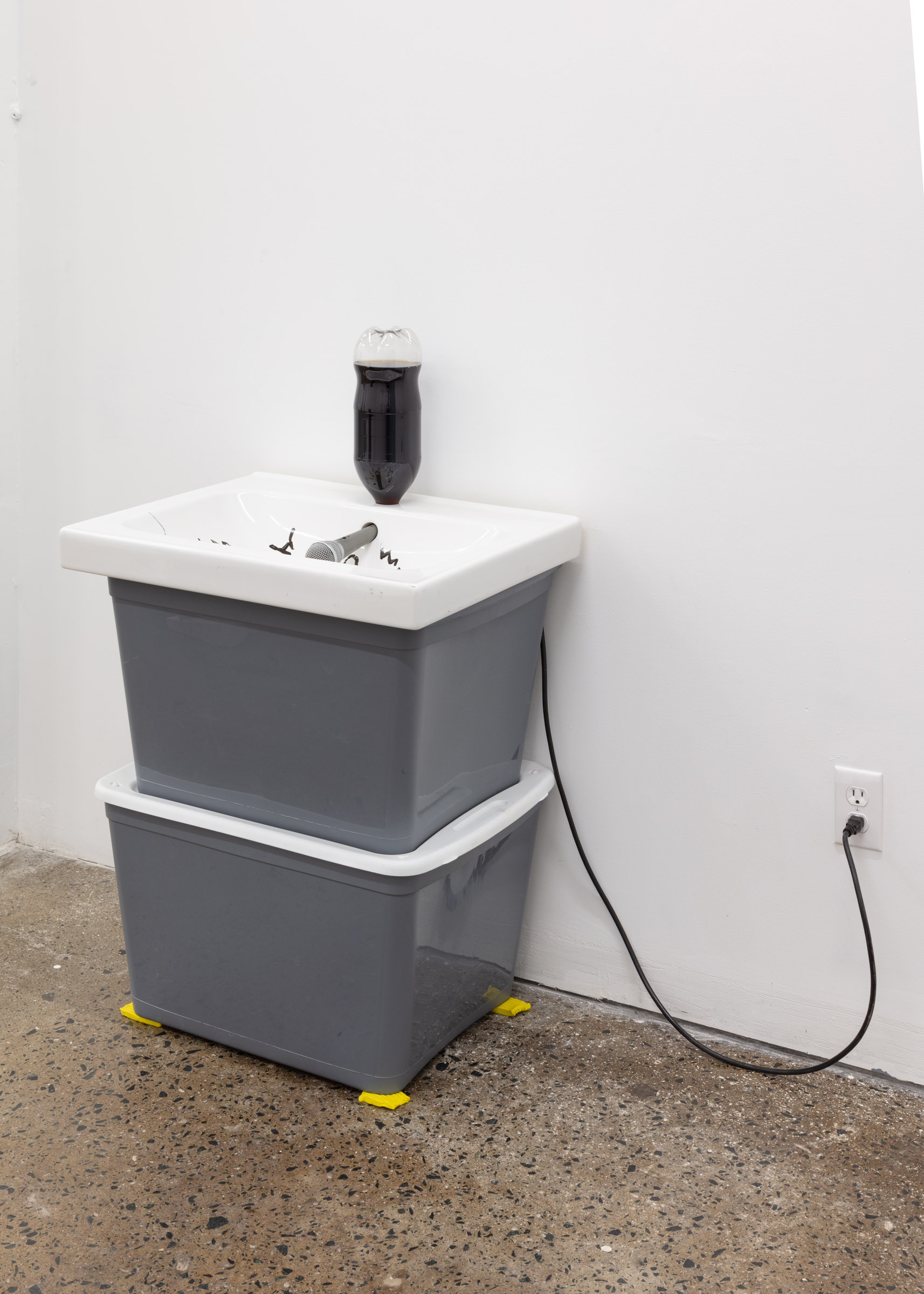
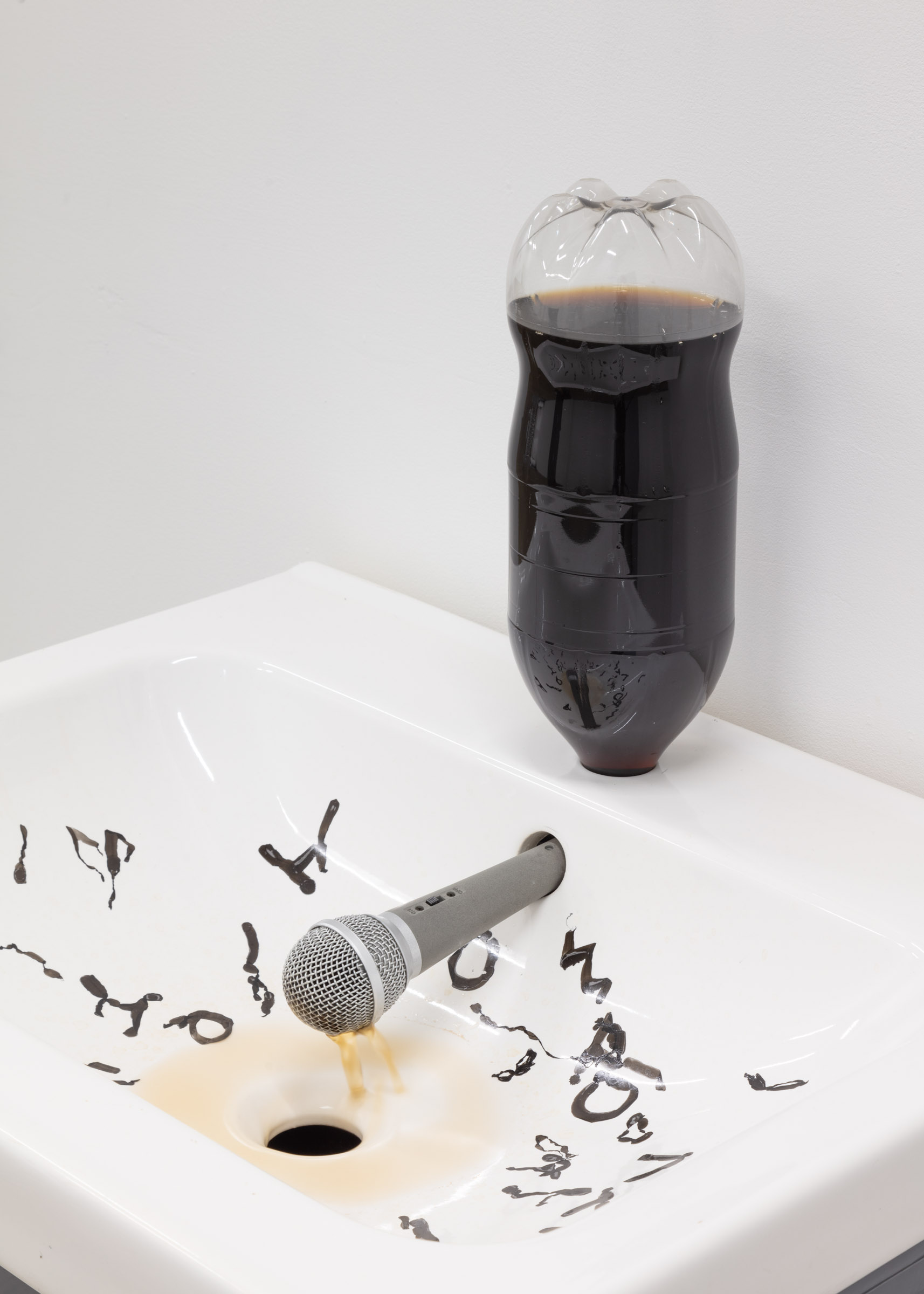
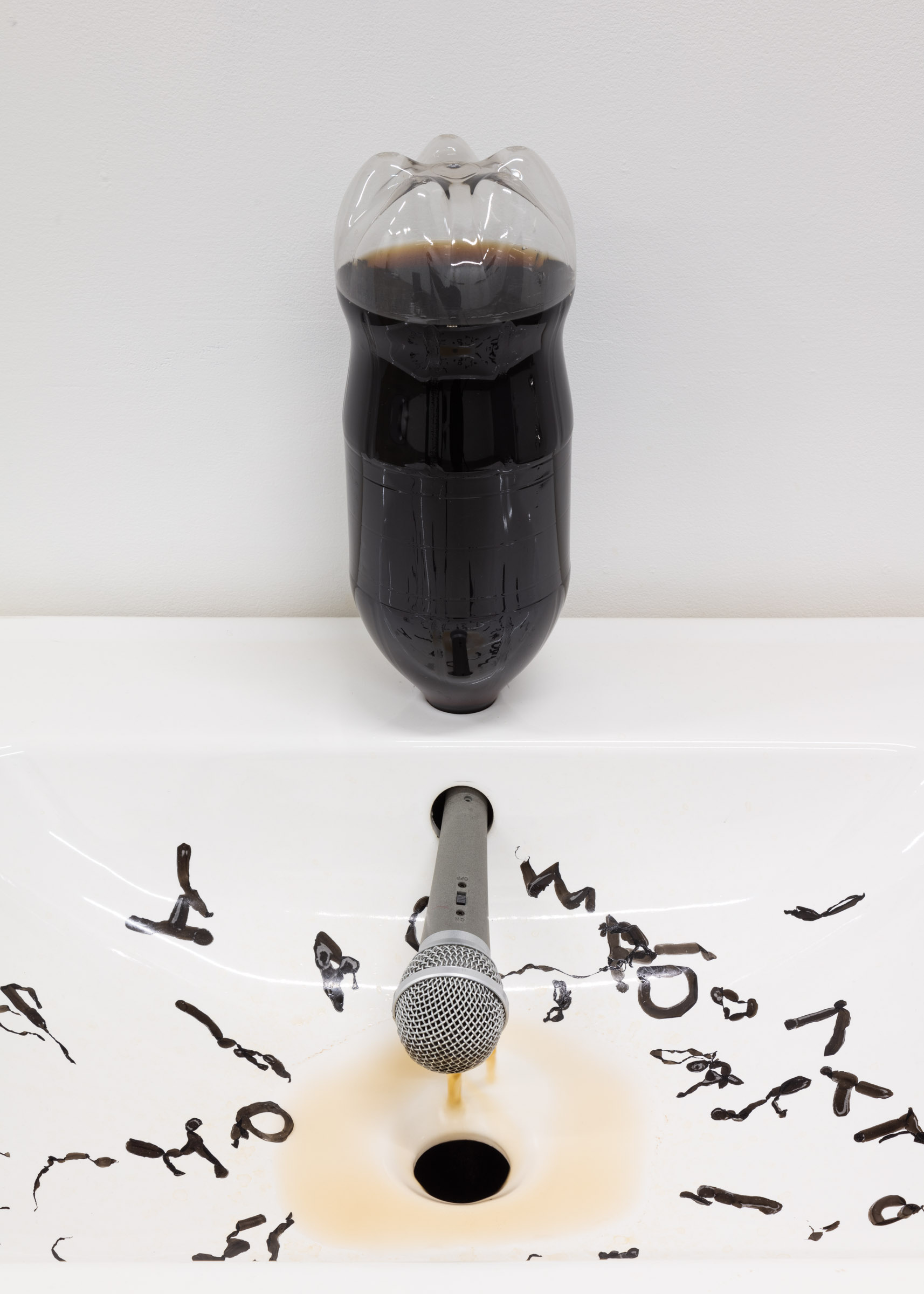
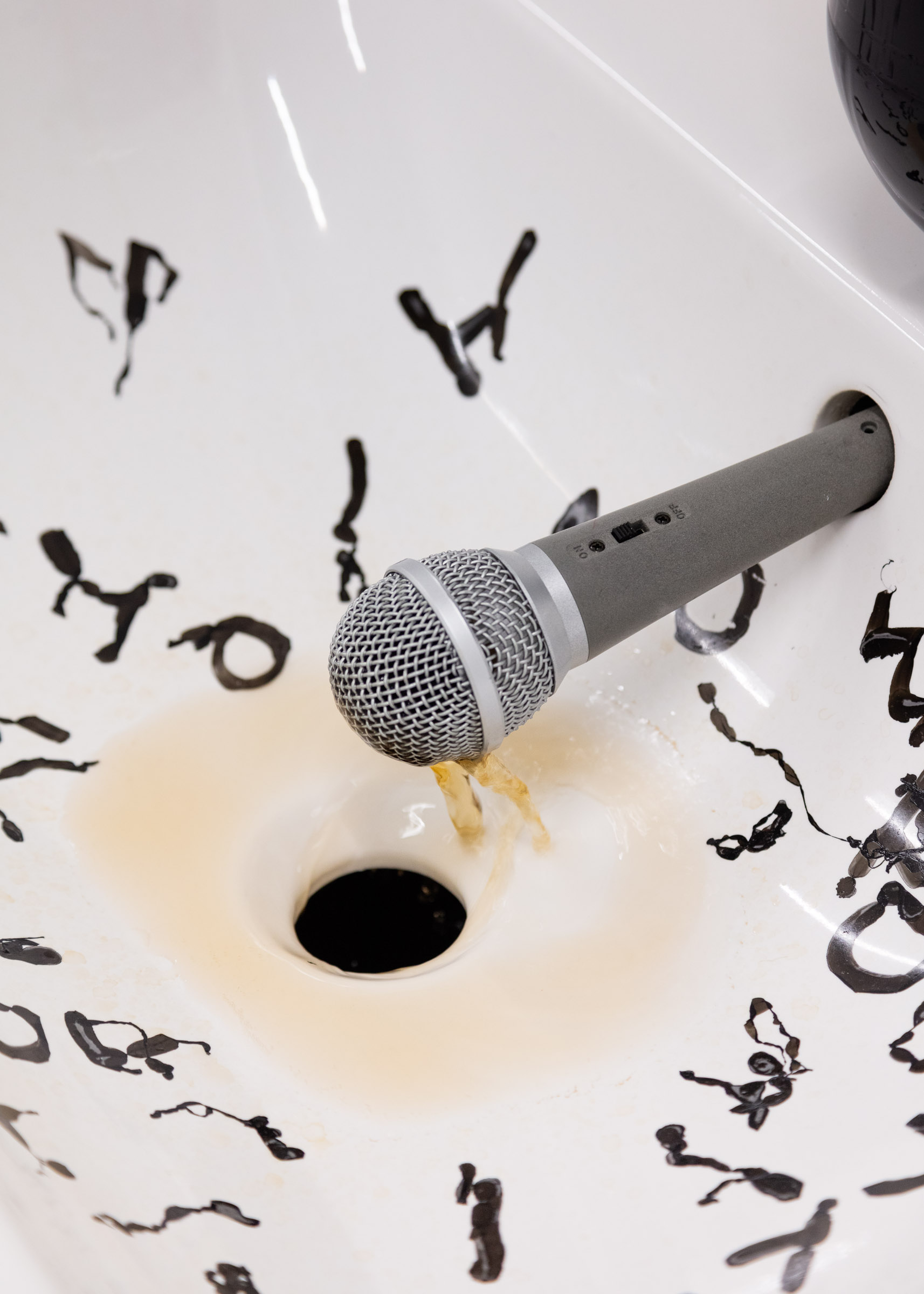
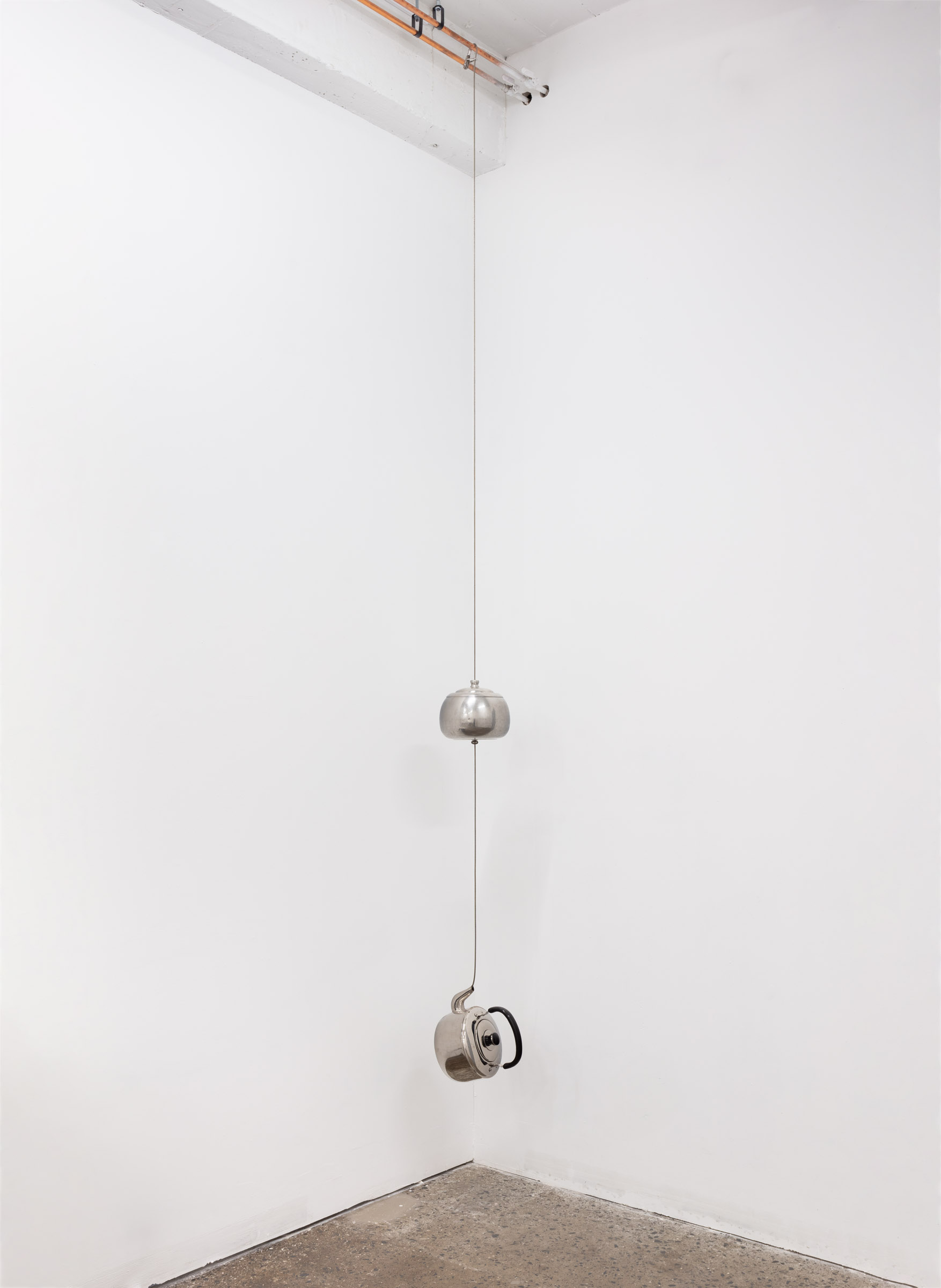
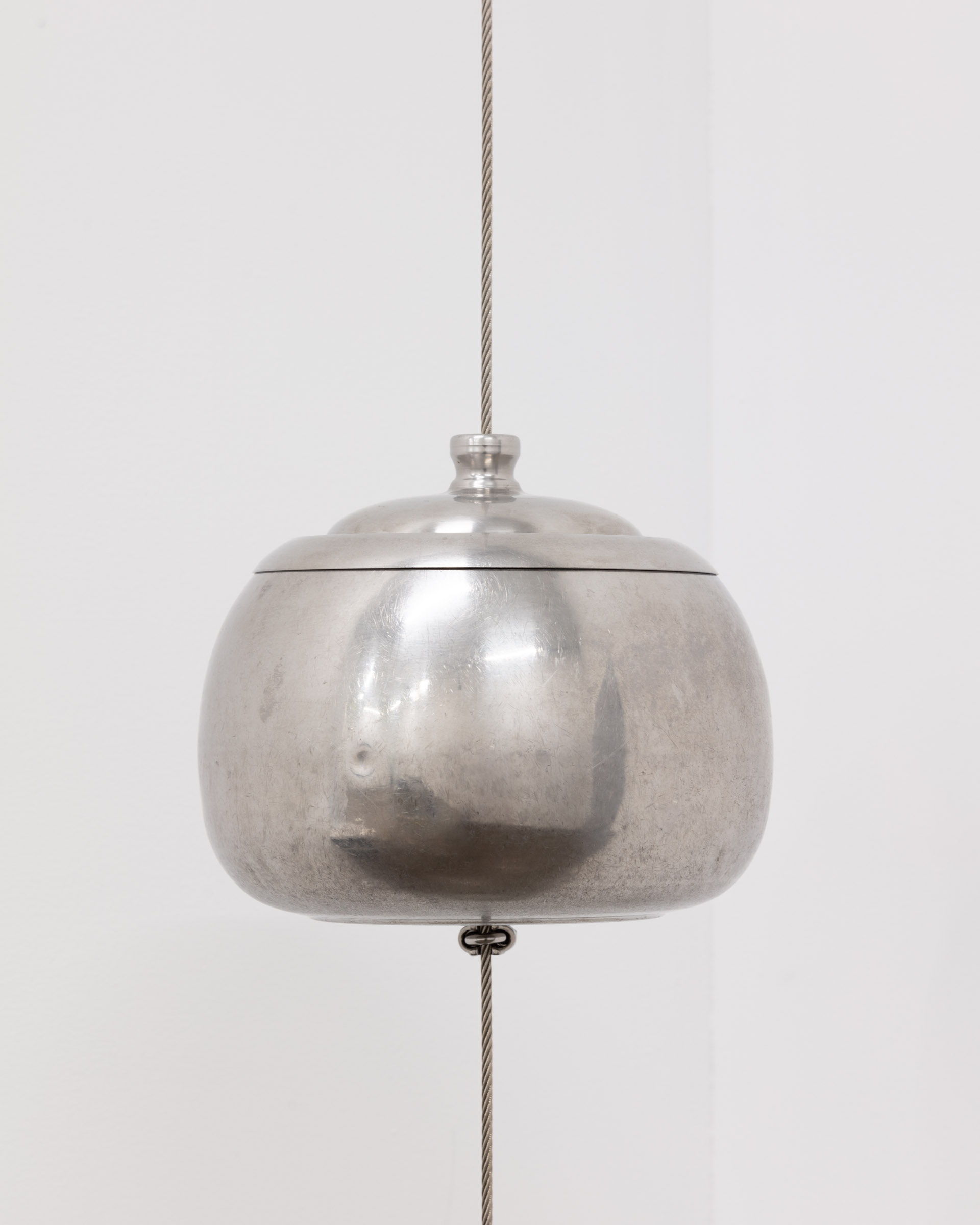
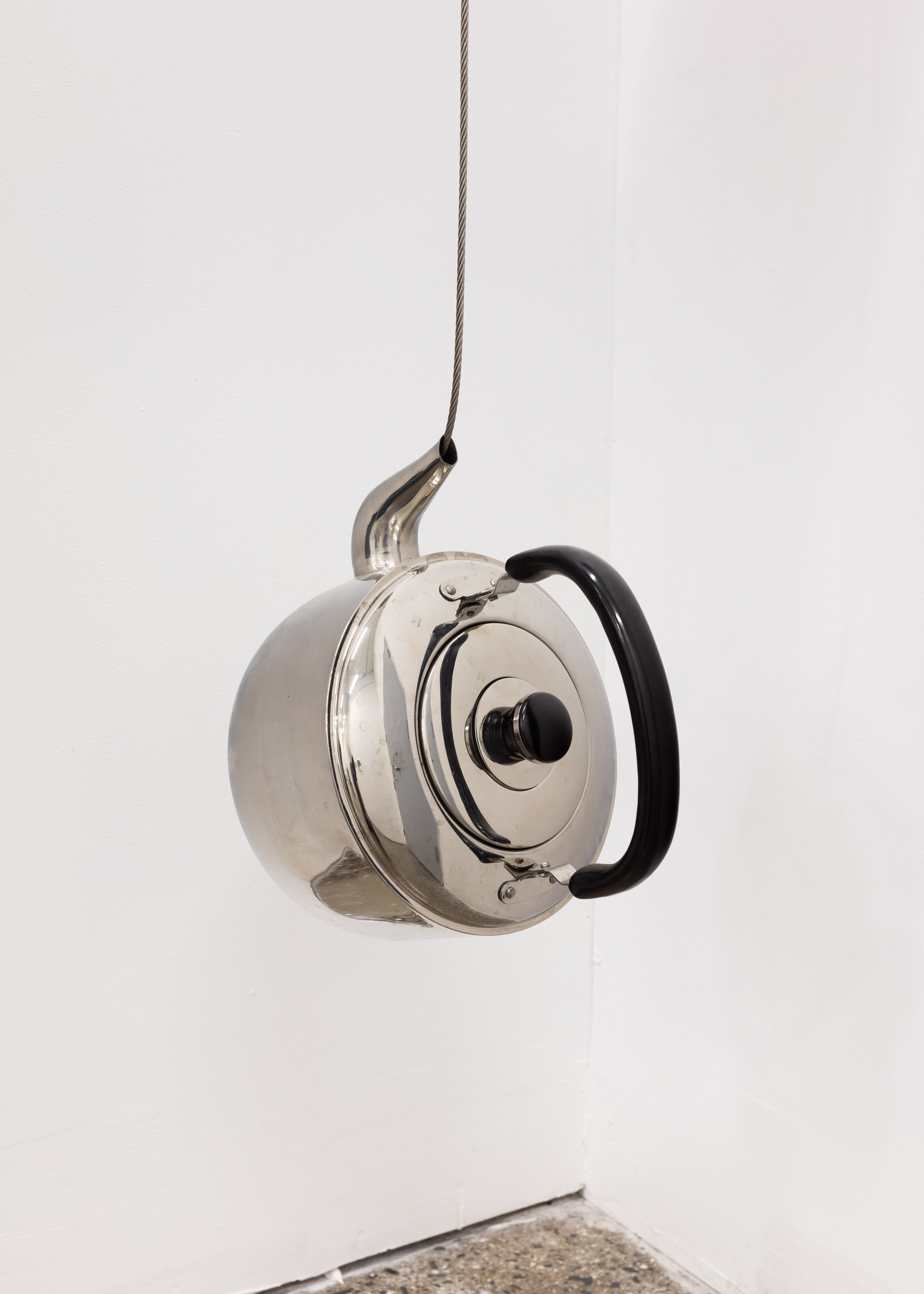
“Can it be that in the west, in our time, the female body has been constructed not only as a lack or absence but with more complexity, as a leaking, uncontrollable, seeping liquid; as formless flow; as viscosity, entrapping, secreting; as lacking not so much or simply the phallus but self-containment - not a cracked or porous vessel, like a leaking ship, but a formlessness that engulfs all form, a disorder that threatens all order?”
- Elizabeth Grosz, “Volatile Bodies: Toward a Corporeal Feminism”
I piss everywhere. My bladder is fine, but my adrenal glands are shot from spending too much formative time in fight or flight mode. Animals drop their liquid quickly when startled to get lighter so we can run faster. My body has a hairwire trigger for flight, and light stressors ring my bladder's alarm easily and often. So anywhere and everywhere becomes a toilet: behind fences, sidewalk planters, park bushes, alleyways, stairwells, a cup, a boot. Shame wears off with sheer repetition of these sudden leaks.
In Bathroom Classroom, we get to revel in leaky containers, lifted from their intended function of regulating spills and shame. Used porcelain sinks, chamber pots, a squat toilet from Korea, and a fiberglass shower base, formerly used to control liquid, are installed with holes unplugged.
Each week of the exhibition Kwon works with a new artist/poet in the space. This premise pokes holes in the bright white veneer of authorship and autonomy, offering Kwon’s installation as writing surface and grounds for interventions in original and translated texts by Isabelle Pauwels (Montréal), Amy Lam (Toronto), Kirby Mages (Los Angeles), and IBanJiHa (SoYoon Kim, Seoul). As chamber pots are recombined and joined in a feminist nod to the ways we leak into each other, so too are the invitations Kwon extends to these writers a movement towards bringing together. Their contributions will remain unfixed, become altered, translated, and shaped as they make and unmake each other in this full bodied education.
On the wall, a large shower drain functions like a mounted dry-erase board, situated adjacent to a conventional dry-erase board punctured by a clamshell sculpture fashioned from chamber pot pieces. The whiteness of the board and the drain reflect each other, amplifying their institutional glare. English being Kwon’s second language, dry-erase boards evoke childhood tensions with another leaky orifice. As a child these boards were a site of failed “mastery” of English, and later failed “mastery” with her mother tongue, living as an immigrant in a settler-colonial context. This complexity reflects language’s relationship to colonialism, or alienation and assimilation. So often we have been made to believe that the only means of escape from colonial power is to become part of it; the boundary between the colonized and the colonizer exists as a blur within subjects that have internalized this form of patriarchal violence.
A steel chamber pot hangs from the ceiling, with a steel kettle hanging by airline-cable below. Kwon upends hierarchies of sipping and pissing, challenging patriarchal colonial purity narratives along with them. Her extensive research into the power of patriarchy in shaping waste management brings us drawings of women pissing, sculptural arrangements of bathroom fixtures from both Korea and North America, and new collaborative relationships between marking and mark making.
Bathroom Classroom marks a reclamation of linguistic and bodily leaks, inviting pissers who also work in the muck of (mis)translatability, diaspora, and feminist perspectives, to unlearn together. Through it, Kwon, Pauwels, Lam, Chen Mages and IBanJiHa generate and negotiate new possibilities for the leakiness of language.
— Abigail Raphael Collins, 2021
HaeAhn Woo Kwon is a visual artist whose work centers primarily on drawing, sculpture, and installation, probing strategies of the makeshift and improvisation. Informed by vernacular architecture in the urban environment of her native South Korea, her practice recombines and transforms everyday objects, highlighting a tension between a culture of excess and the resourcefulness born of crises. Kwon received her MFA from the University of Guelph and a BFA from the Cooper Union. In addition to her independent practice, she frequently collaborates with Canadian artist Paul Kajander as HaeAhn Paul Kwon Kajander. Threading given and family names together, their practice challenges identificatory constructs such as gender, ethnicity, and patriarchal lineage. Kwon has participated in exhibitions in Canada (Franz Kaka, Support, ESP), the United States (The Hand, Michael Benevento) and South Korea (Samuso, Sempio Space, Okin Theater).
Isabelle Pauwels is currently based in Montréal. She received a BFA from Emily Carr Institute of Art and Design (Vancouver) in 2001, and an MFA from the School of the Art Institute of Chicago in 2006. In 2009 she was the inaugural winner of the Brink Award, granted to an early-career artist working in Washington, Oregon, or British Columbia. In 2013 she was a finalist for the Sobey Award. Recently her work has been exhibited at the Musée d’art contemporain de Montréal, Unit 17 Gallery, Vancouver, and at the Dazibao, Montreal.
Amy Ching-Yan Lam is an artist and writer. She has shown performance, film, and exhibition projects internationally, both solo and as part of the art collective Life of a Craphead (with Jon McCurley). Recent and upcoming projects include a performance with Oliver Husain as part of the Seoul Mediacity Biennale and a commission for Eastside Projects, Birmingham, UK. Her poetry chapbook The Four Onions was published by yolkless press in spring 2021, and her first full-length collection will be forthcoming in 2023. She was born in Hong Kong and lives in Toronto, Canada, which is the land of the Mississaugas of the Anishinaabe, as well as the territory of the Haudenosaunee and the Wendat.
Kirby Chen Mages is a writer and interdisciplinary artist based in Los Angeles. Through the bi-weekly online screening project whatsherface in 2017, she curated intersectional feminist film, videos and performances. She is the recipient of the Elizabeth Kray Poetry Prize and she currently attends Antioch University's Low-Residency MFA program, where she is Lead Editor in Translation for Antioch's literary journal, Lunch Ticket.
Known by their stage name Ibanjiha, SoYoon Kim is an multidisciplinary artist based in South Korea. Through drawing, animation, music, performance, and writing, their practice engages with the topics of gender, feminism and queerness using blunt and humorous lyrics and social commentaries. Their works have been shown in Korean LGBTQ rights events and international experimental film festivals. Their essay collection Ibanjiha: A Queer Next Door was published in 2021 by Munhakdongne Publishing Group.
The artist wishes to acknowledge the support of the Canada Council for the Arts.
